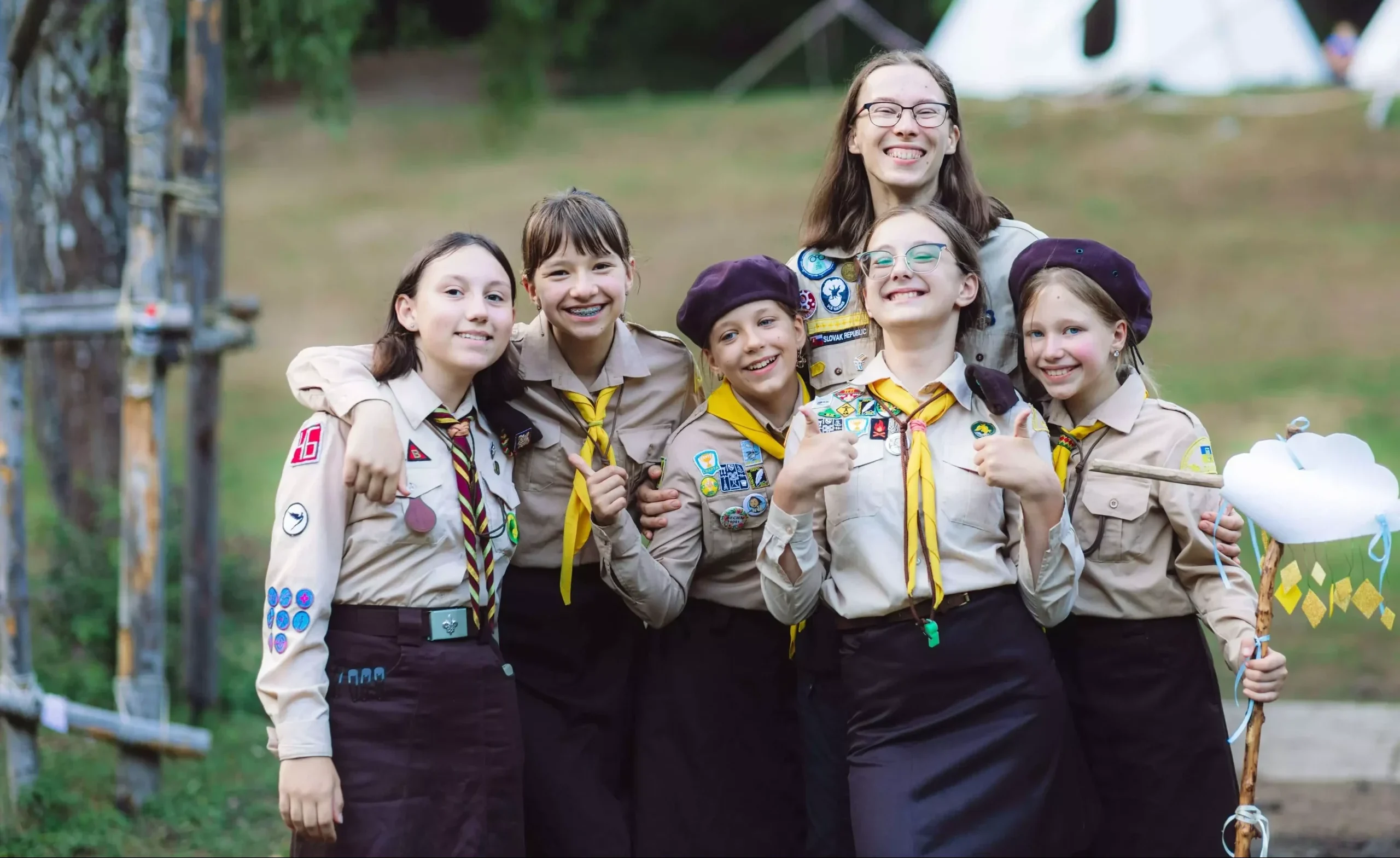According to the law, the Plast method is a Ukrainian scouting method developed by Plast over its 111-year history. It is based on the scouting method. However, in Plast, it has its own unique and effective components, adapted to the Ukrainian national tradition and the needs of Ukrainian society.
The method of Plast — Ukrainian scouting — has 8 components that help to educate conscious and strong personalities. These components will be described in the publication.
Law and promise
The Plast Law includes 14 points that embody the traits which every Plast member cultivates in himself, constantly striving to become better.
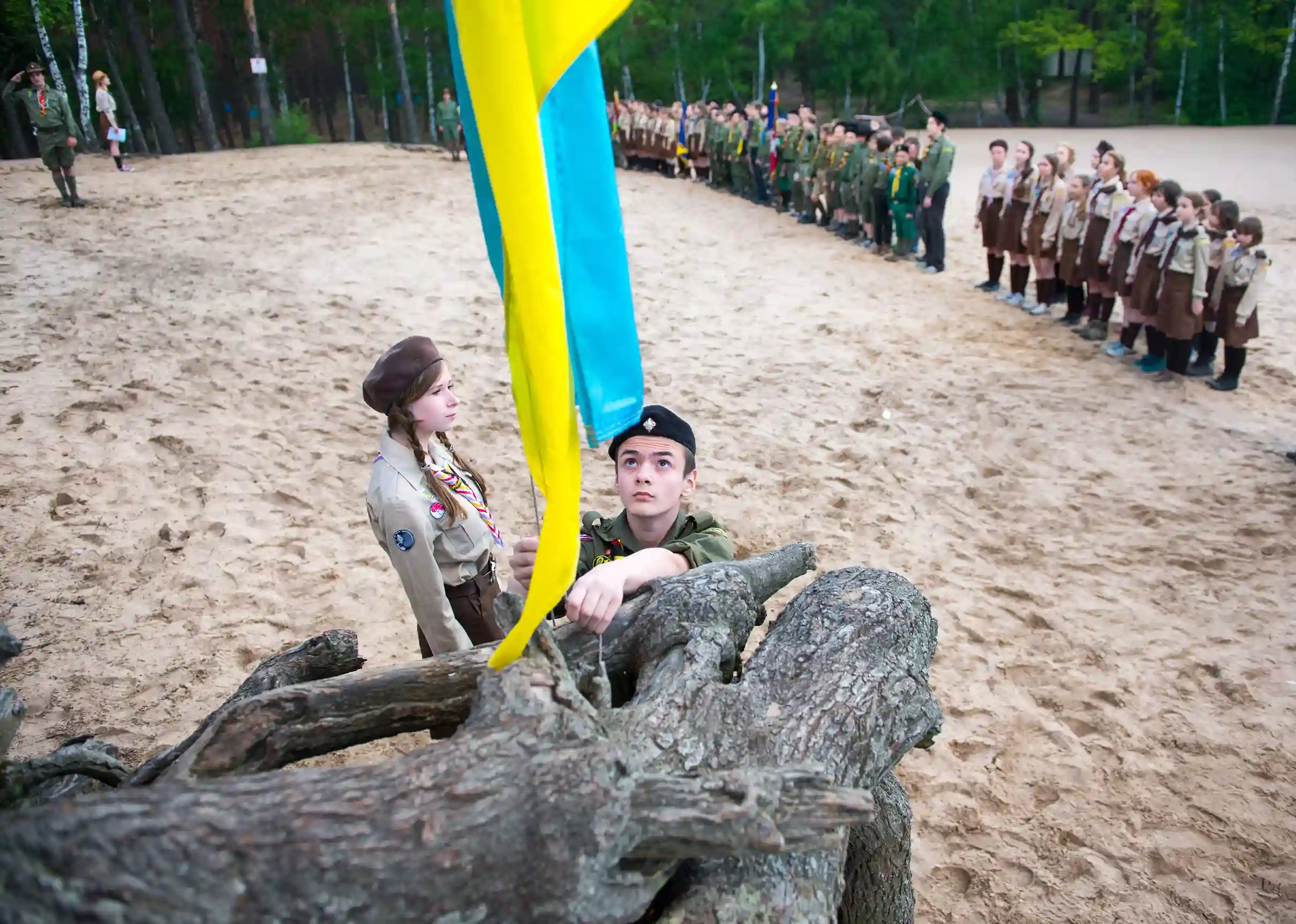
The Plast Law
A Plast member is a person who:
1. keeps his/her word,
2. is conscientious,
3. accurate,
4. frugal,
5. fair,
6. polite,
7. fraternal and benevolent,
8. even-tempered,
9. helpful,
10. disciplined,
11. vigilant,
12. cares about his or her health,
13. loves beauty as well as cares about it,
14. and is always remembered with a good word.
Interestingly, the Plast Law has requirements that are not found in any other scouting organization in the world (for example, “a Plast member is precise”). They were laid down by the author and one of the founders of Plast, Oleksandr Tysovsky, specifically to eradicate critical flaws in the Ukrainian mentality.
In the 1930s, in addition to this Law, the Three Main Duties of Plast appeared. They were later incorporated into the text of the Plast Oath, which is taken by every Plast member, as well as by all scouts in the world.
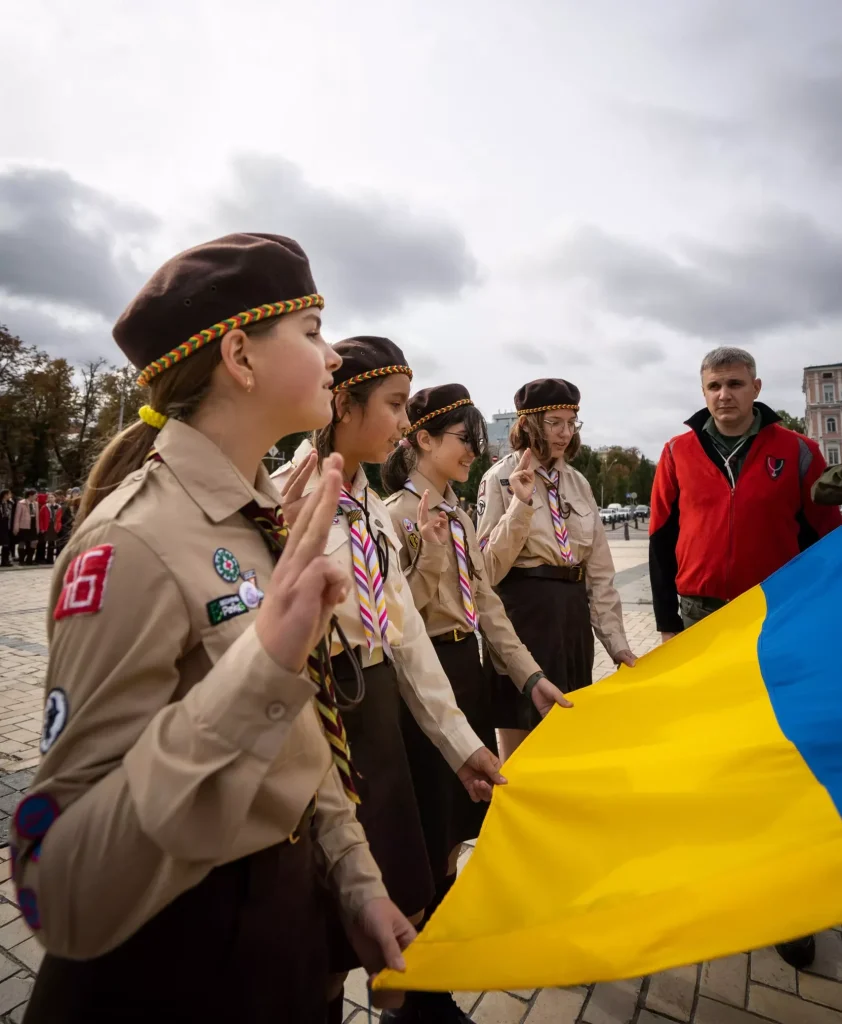
The Plast Oath
“I swear on my own honor that I will do everything in my power to be faithful to God and Ukraine, to help others, to live by the Plast Law and to obey the Plast guidance.”
The three folded fingers in the Scout salute are a constant reminder to Scouts of the Three Main Duties of the Oath.
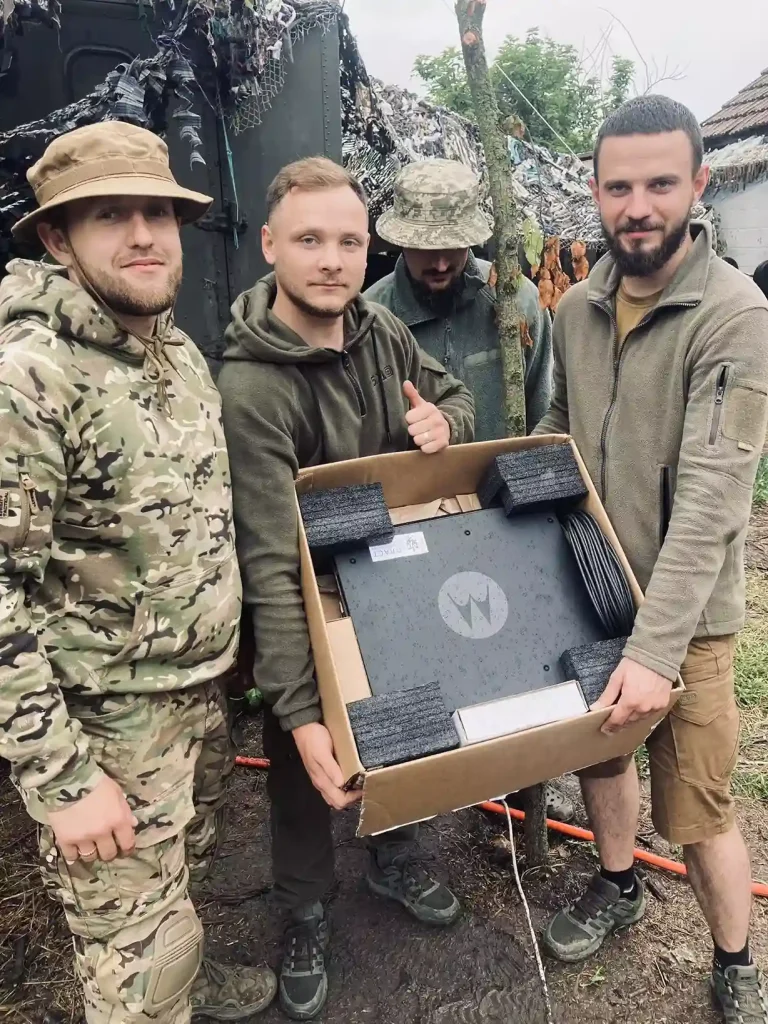
It is the loyalty to the Plast Law and the Oath that motivates every Plast member to do everything possible for the victory of Ukraine, to fight for its free future.
More than 530 Plast members have come to the defense of the country and risk their lives every day. Thousands of Plast members volunteer around the world, and donate to protect our friends on the front line and Ukrainians affected by the war.
Learning by doing
Scouting is known for the fact that its members receive all the basic knowledge and skills not through dry theoretical lessons, but in the form of fun, interesting and useful activities as well as games.
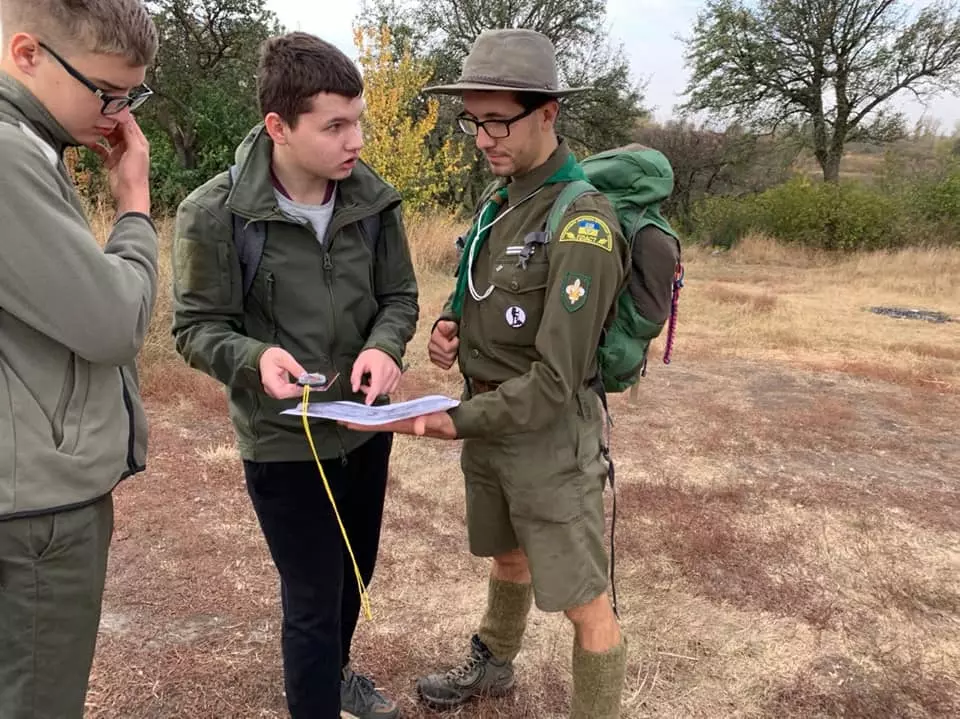
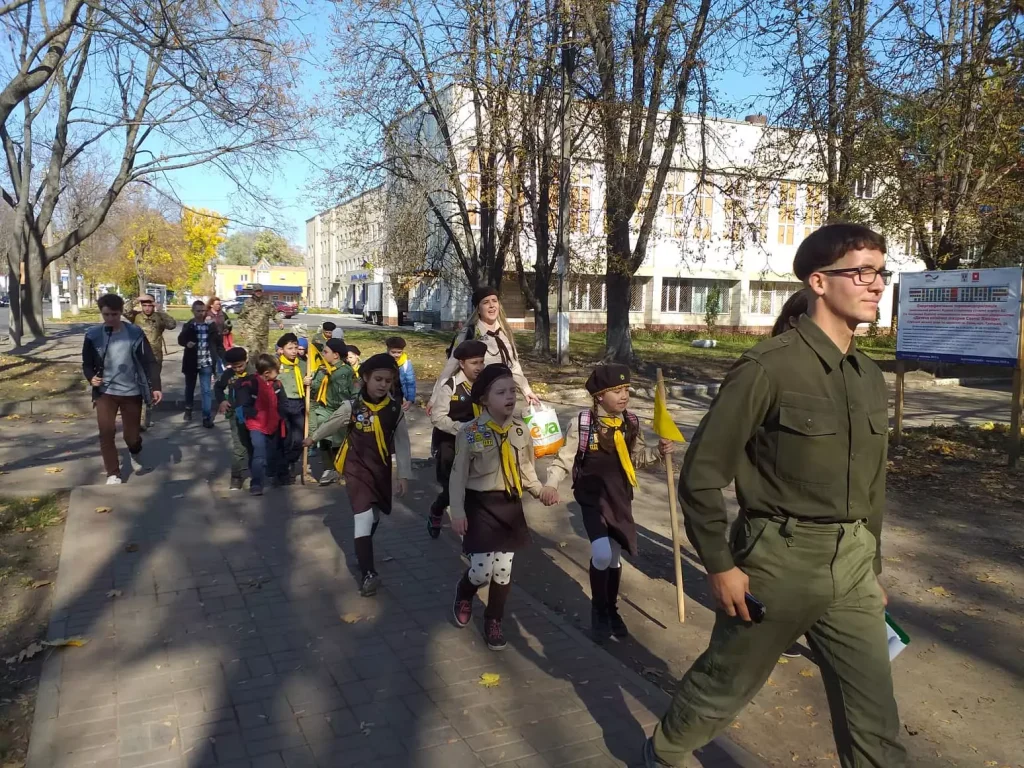
“I always take into account the requests from the group, ask what they are interested in. If they want to learn theatrical art, I invite coaches in improvisation or stage speech, if they are interested in historical topics – we go to the museum,” – says Plast mentor Volodymyr Mishchenko about his classes with the students.
In the 1920s, Plast practiced certain so-called “work” camps. For example, the 1924 camp led by Plast co-founder Ivan Chmola was nicknamed the “construction camp.” The reason is that the participants had a lot of camp work, actively arranged their household, and learned to live in nature with comfort. At another camp, the participants were assigned to help an archaeologist conduct excavations.
In Plast, a child constantly puts their knowledge into practice and gradually takes on more and more responsibility. From conducting a simple game for their group to participating in the organization of their own camp.
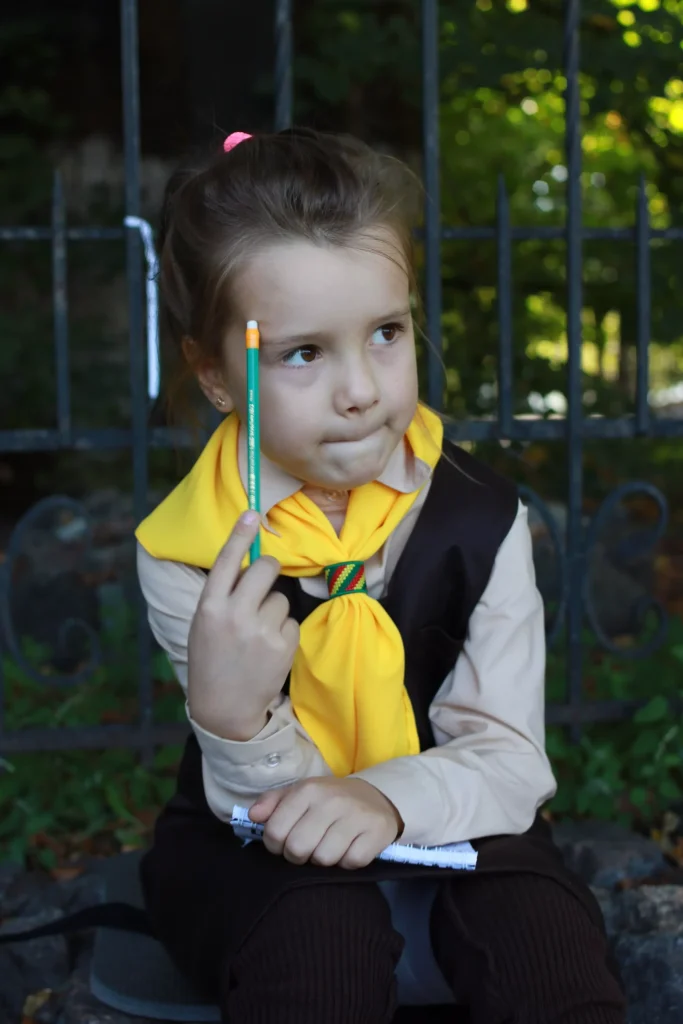
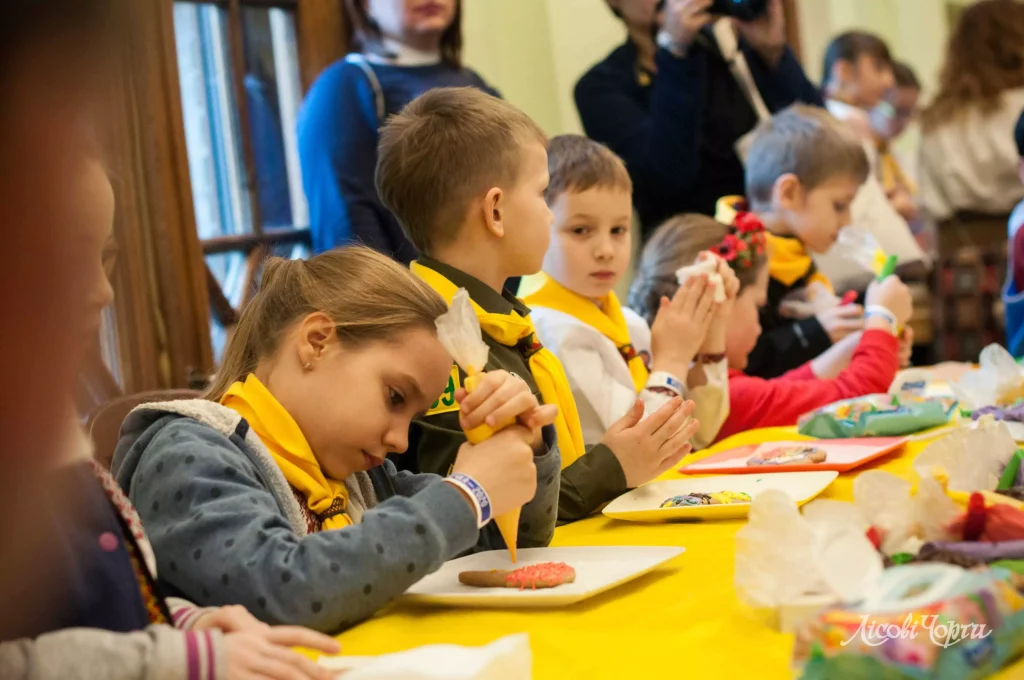
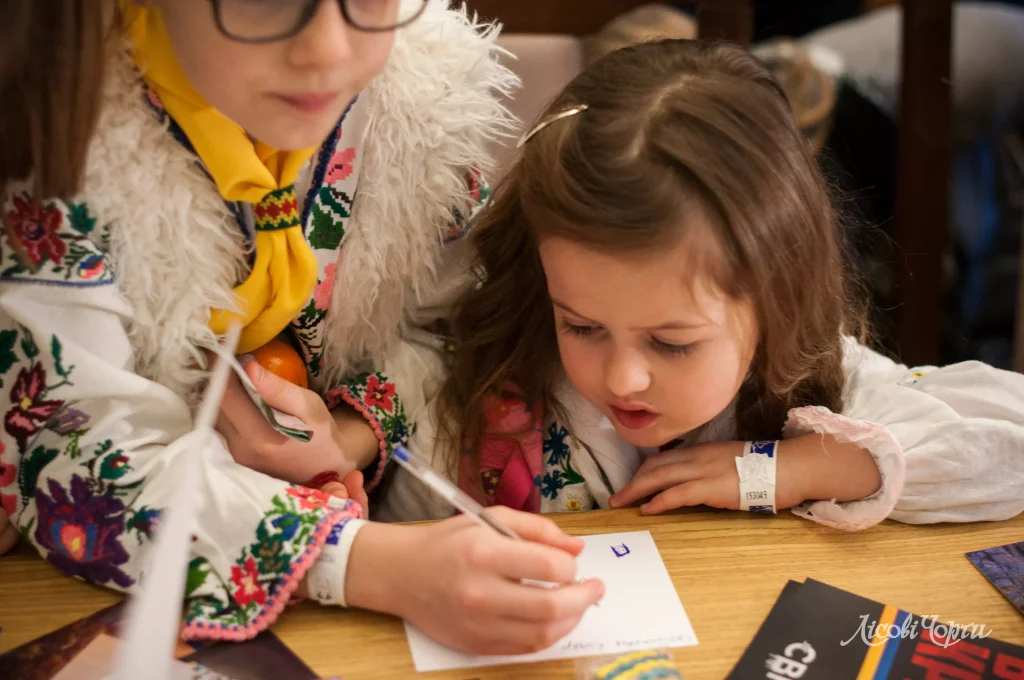
Apart from that, knowledge and skills are best learned through teaching others. So, older youths, under the tutelage of adult mentors, often manage younger students, organize activities for them, pass on their knowledge, teach them to recognize trees, cook over a fire, etc.
Team system
In accordance with scouting principles, children in Plast work in small groups of 8-10 people. In Scouting, these groups are called “patrol”, in Plast – “groups” (for children aged 12-17) and “swarms” (for children aged 6-11).
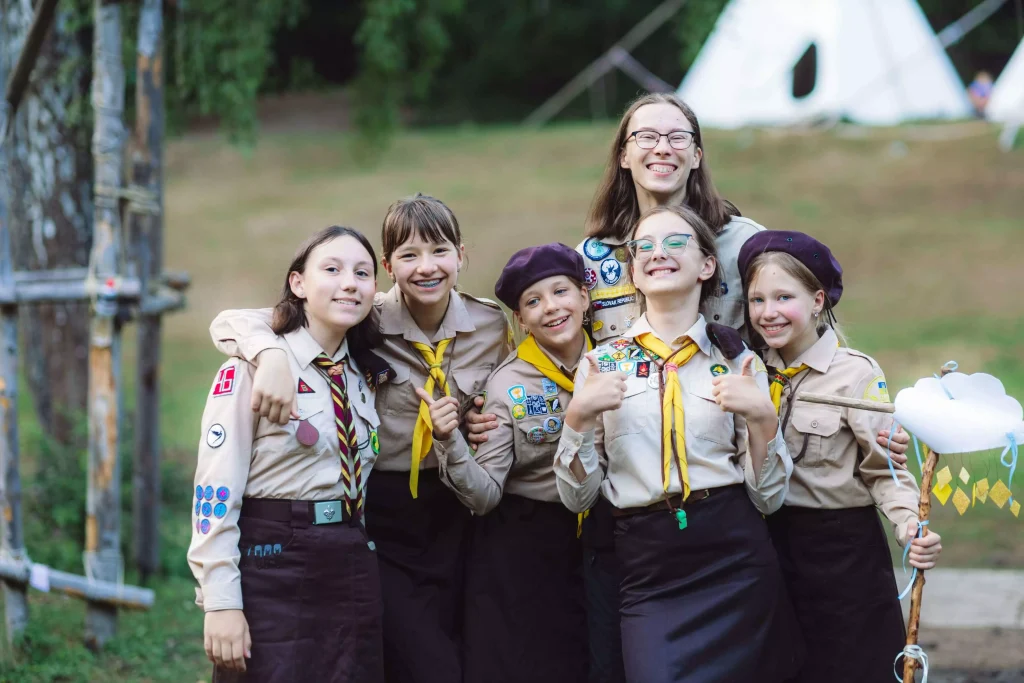
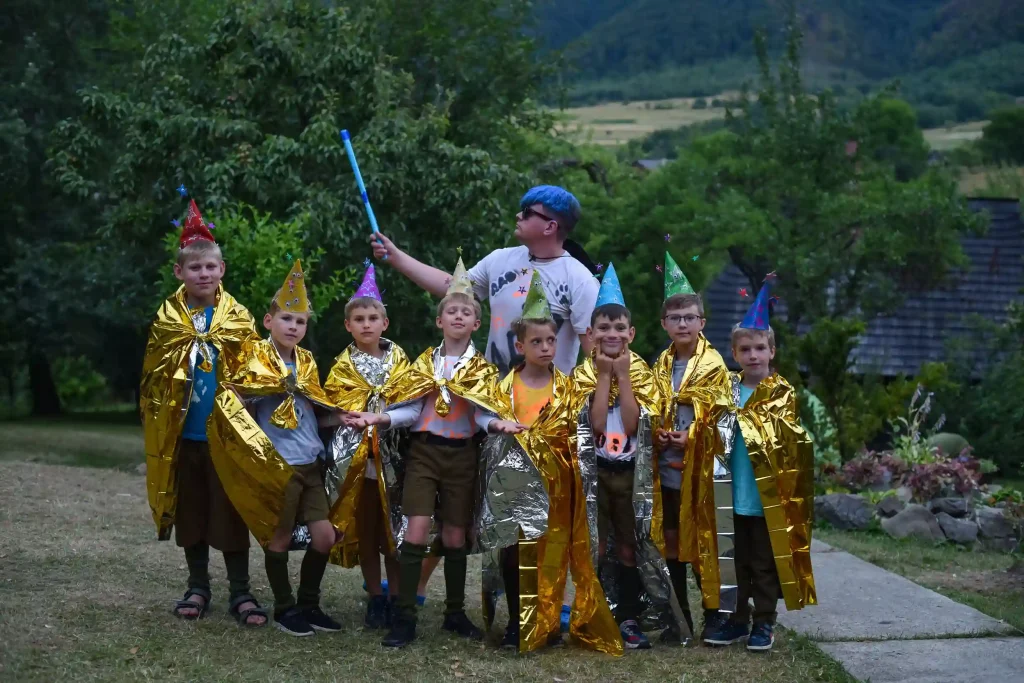
Each group has its own adult mentor who makes sure that children follow the Plast program, supports them and helps them. However, the groups also elect a leader from among themselves – a group leader and other clerks, a list of which was suggested by the BP (Baden-Powell) at his time: deputy group leader, scribe, treasurer, host, etc. This system works for both older and younger children.
So, from a very young age, through these roles, children learn to work in a team, take responsibility, and get to know something new. This helps them to find new hobbies or even a lifelong career.
Bohdan Hawrylyshyn – is a well-known economist, public figure and philanthropist, a Ukrainian by birth, who also belonged to Plast. At the 25th WOSM World Scout Conference in Denmark in 1975, he said:
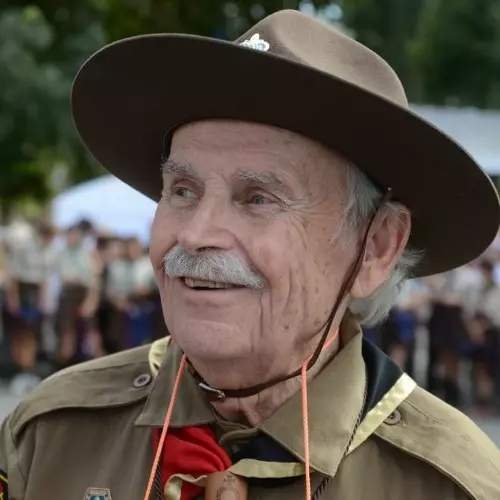
“I was deeply impressed by the fact that, having spent most of my adult life gaining knowledge in a management school and working professionally in this field, I realized that my first and true management school was my membership in a scout (Plast) group.”
Several groups are united into larger units – “troops”, cub swarms – into “nests”, and little birds – into “small nests”. Adult volunteers help with the activities of these larger groups. But the children themselves are also involved in the management.
The youth (children aged 12-17) are united in the Council of Group mentors. This is a collective body that can make decisions about the activities of the entire troop and propose their decisions to adults. For example, the Council of Group mentors can determine which activities they want to implement during the year, what kind of trip they want to go on, who will be responsible for what, etc.
Symbolic framework
Over 111 years of activity, Plast has become a world with its own magic, traditions and symbolic framework. This system of symbols develops children’s imagination, sense of adventure, unites them, makes them friends and gives them a sense of community.
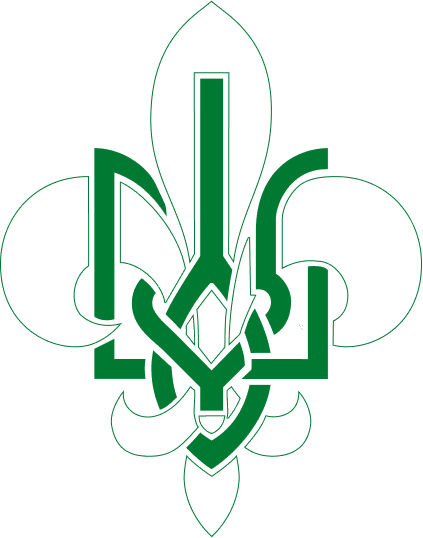
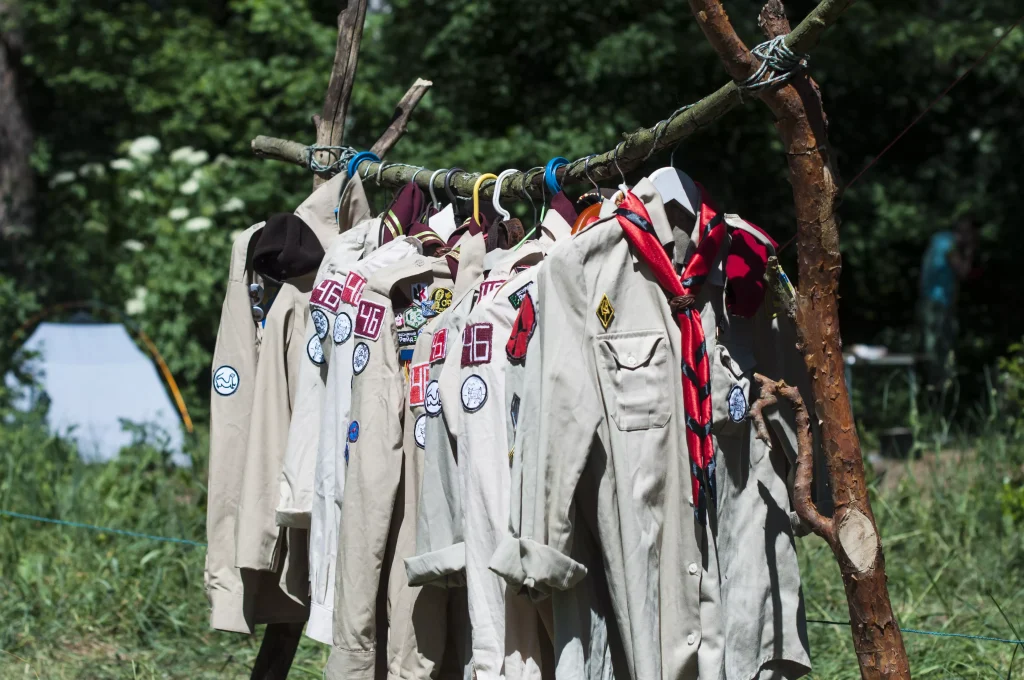
The main symbol of the Plast movement is the Plast Badge (a scout lily intertwined with the Ukrainian trident).
The Plast uniform is very similar to the uniforms of the world’s oldest scouting organizations, as it was created and developed together and in parallel with them. Each patch, each badge, even the place of their placement, has its own symbolic meaning.
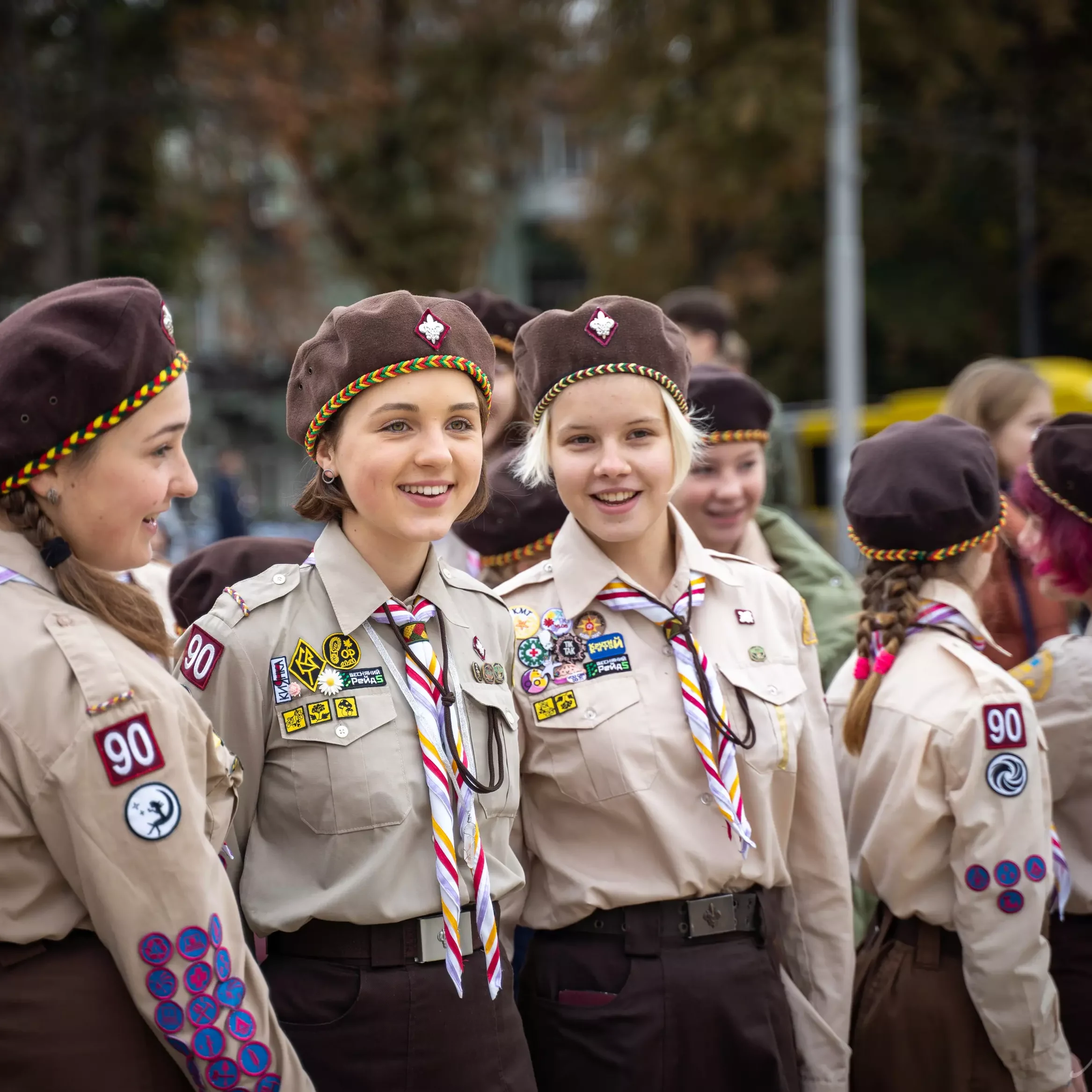
Uniform makes all children and adults equal in Plast. Everyone creates themselves. The uniform strengthens the sense of teamwork and contributes to the socialization of young people.
There are also many other, often unwritten, traditions and ceremonies.
Drill with dozens of commands, the execution of which is known only to Plast members. Taking the Oath, initiation of the troop flag, opening and closing the day or camp, prayers and hymns. Also, all Plast members are united by a specific language – “Plast jargon/slang” and the ancient Scout tradition of having a nickname. Often Plast members call each other not by the name they were given at birth, but by a nickname they chose or their friends chose for them.
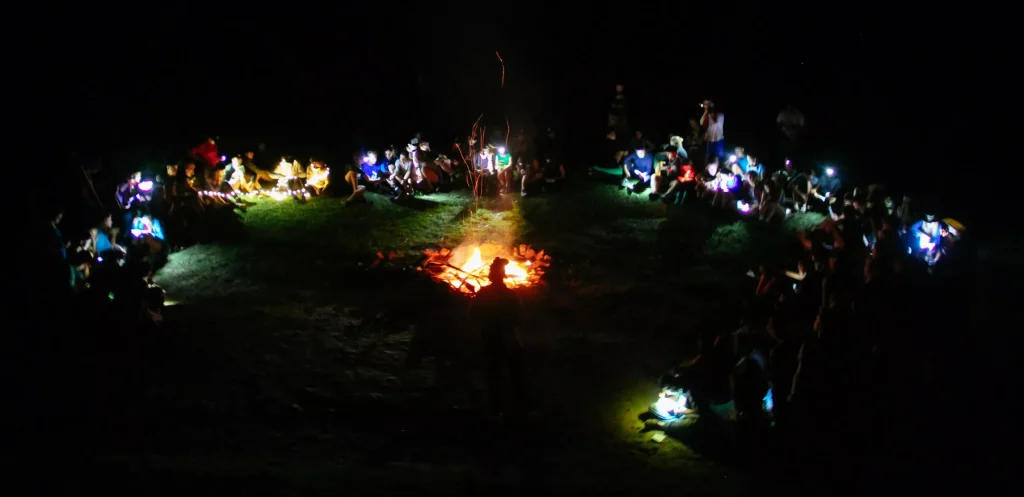
And there are dozens of Plast songs that have been played for decades at thousands of evening campfires, around a sparkling fire in the circle of your best friends.
Plast member Volodymyr Pedko, who took the Plast Oath back in 2003:
“I still remember very vividly my first trip to the mountains and my first campfire, even though it was more than 20 years ago. I have kept an ember from that campfire. And when I made a fire for the first time in my life, I put that coal in the base of it. These are incredible memories from my childhood”.
And symbols in Plast continue to emerge, as children create new groups, invent names for them, unique traditions and songs, which are then passed on to the next generations.
Personal progression
Plast creates an environment for harmonious and comprehensive personal development through self-education. One of the goals of self-education in scouting is to teach a child to make decisions and take responsibility for them. In Plast, this ability is called “self-reliance,” which also includes the ability to find the right way out of difficult situations without assistance.
The Plast program plays a key role in the development of self-education. The organization has 3 educational programs for children of different ages.
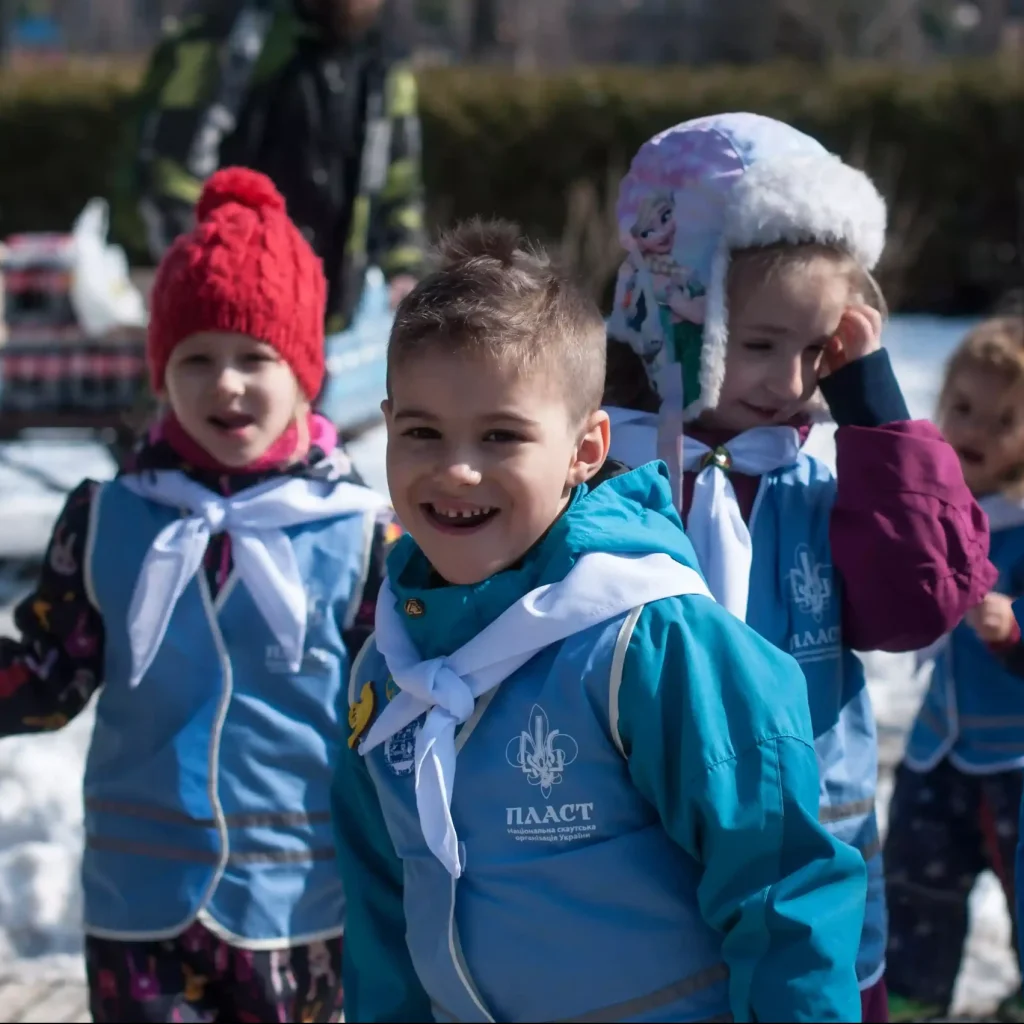
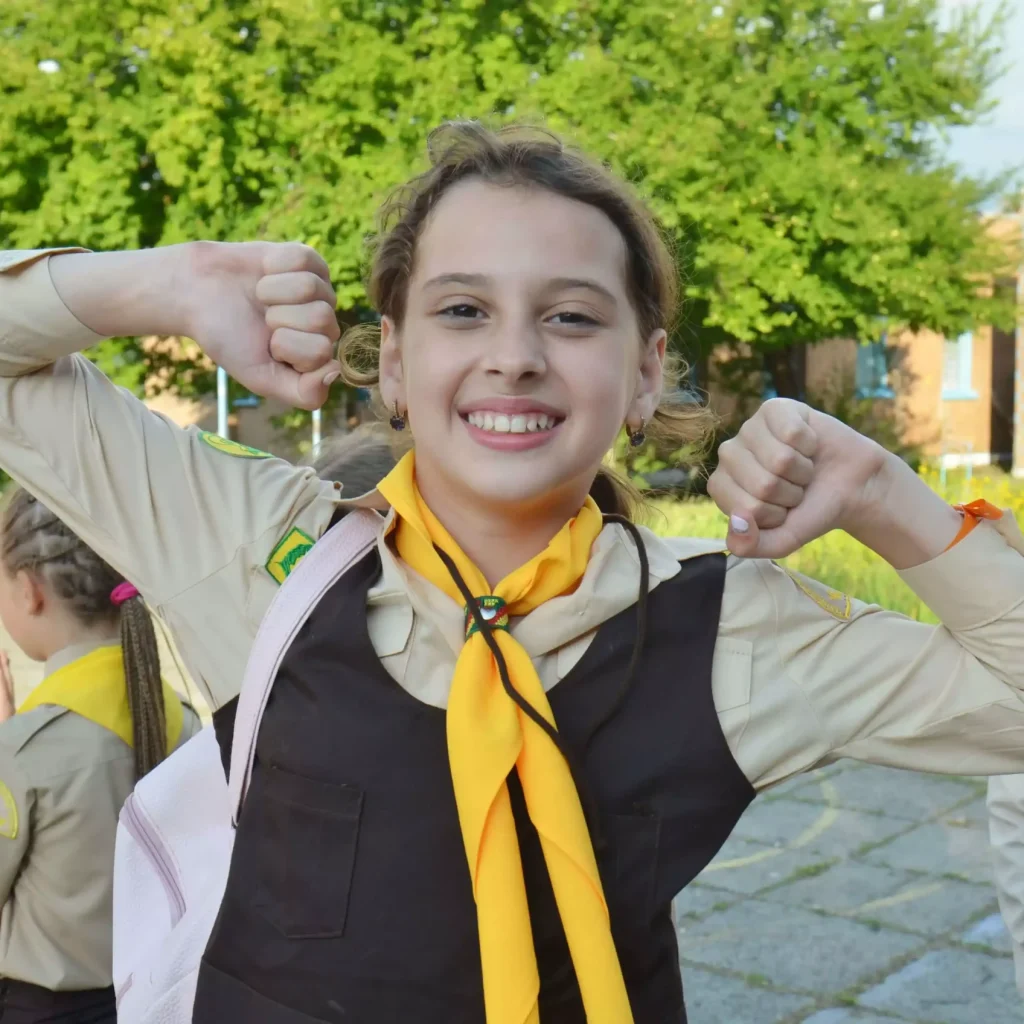
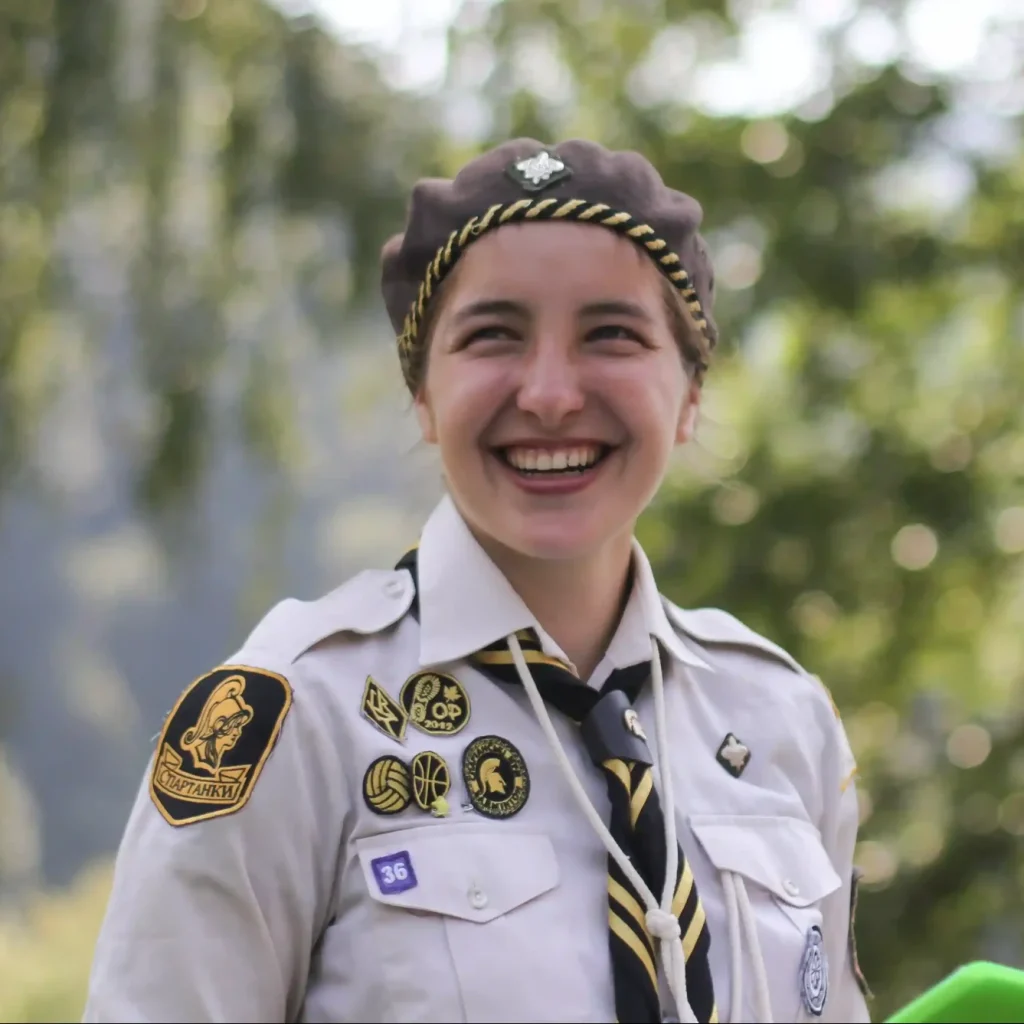
Each age category has its own system of steps. It includes a list of thematic tasks for each stage. And the child independently defines when and in what form to complete these tasks. Of course, adult tutors constantly encourage development, acquisition of new skills, abilities, knowledge and experience. But, in the end, the child manages his or her own progress through the stages, learns time management, and constantly improves.
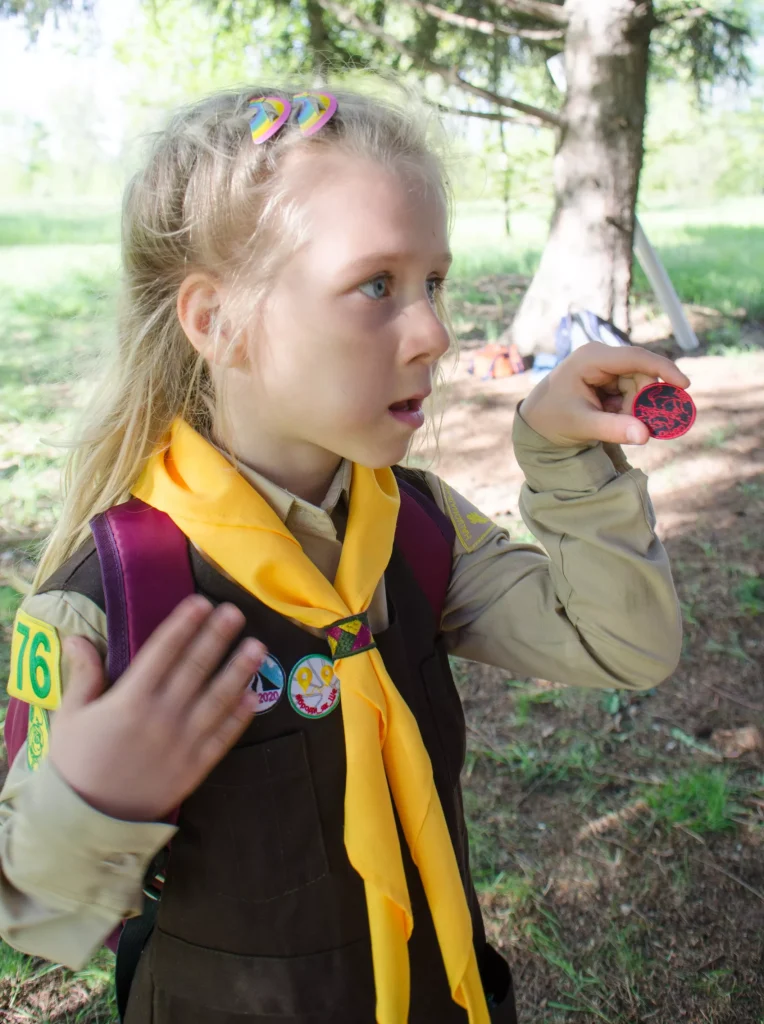
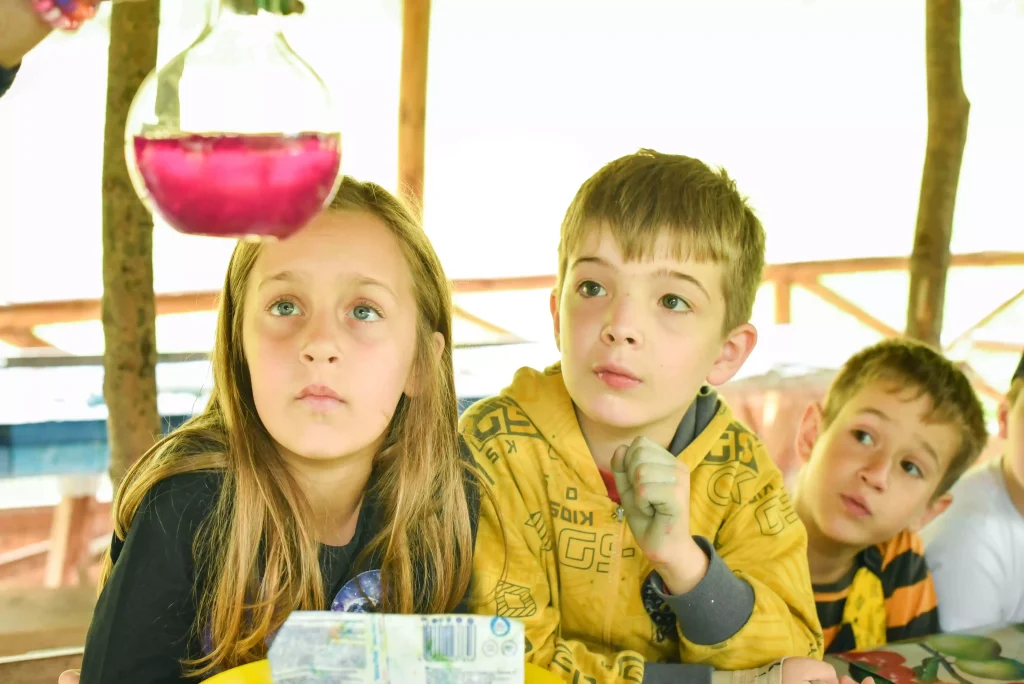
For example, for teenagers aged 12-17, in order to obtain the highest degree, they need to successfully organize 9 socially useful projects.
In addition, Cub Scouts and youth can acquire Plast skills – knowledge and skills in certain specializations. For instance, embroidery, cooking, sports skills, artistic skills, etc. In total, the program includes more than a hundred such skills, so each child can choose what he or she likes the most and understand himself or herself and his or her hobbies.
Learn more about Plast programmes for children here.
Life in Nature
Plast members always try to spend more time outdoors, among nature. Trips, camps, and walks are an integral part of the Plast program, just like for all scouts around the world. And even weekly classes, if possible, are held outdoors.
Cub Scouts get acquainted with nature through travels and walks, but they don’t spend the night in nature yet. The youths are actively learning to live in open space, to take care of their everyday life, to spend the night in tents. This is best realized at camps.
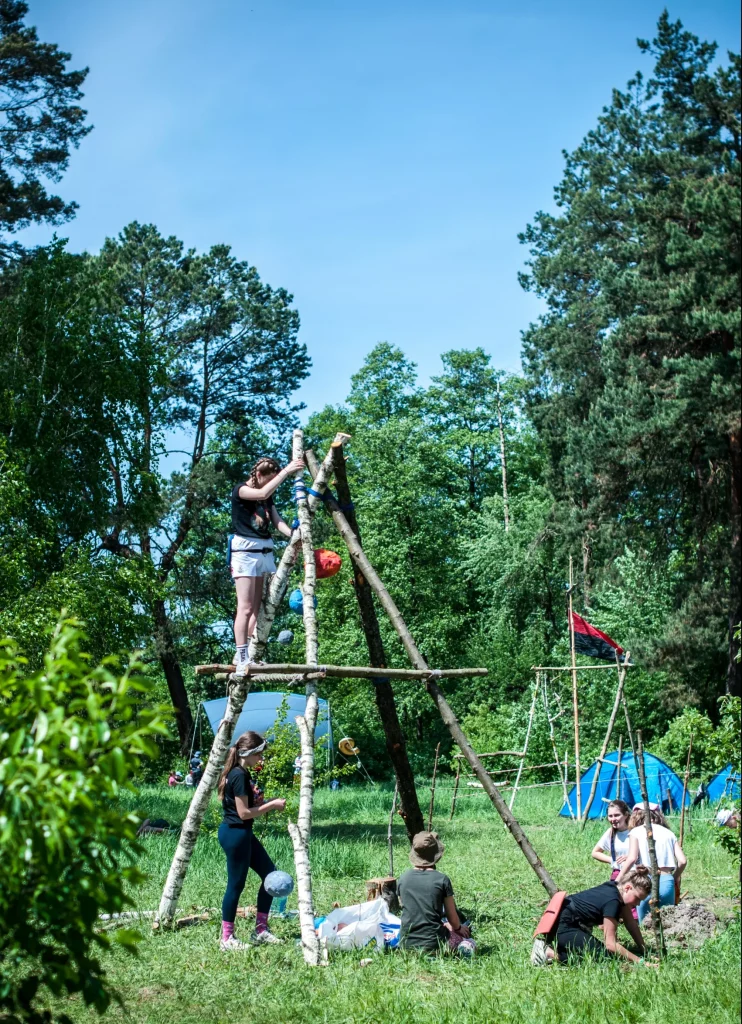
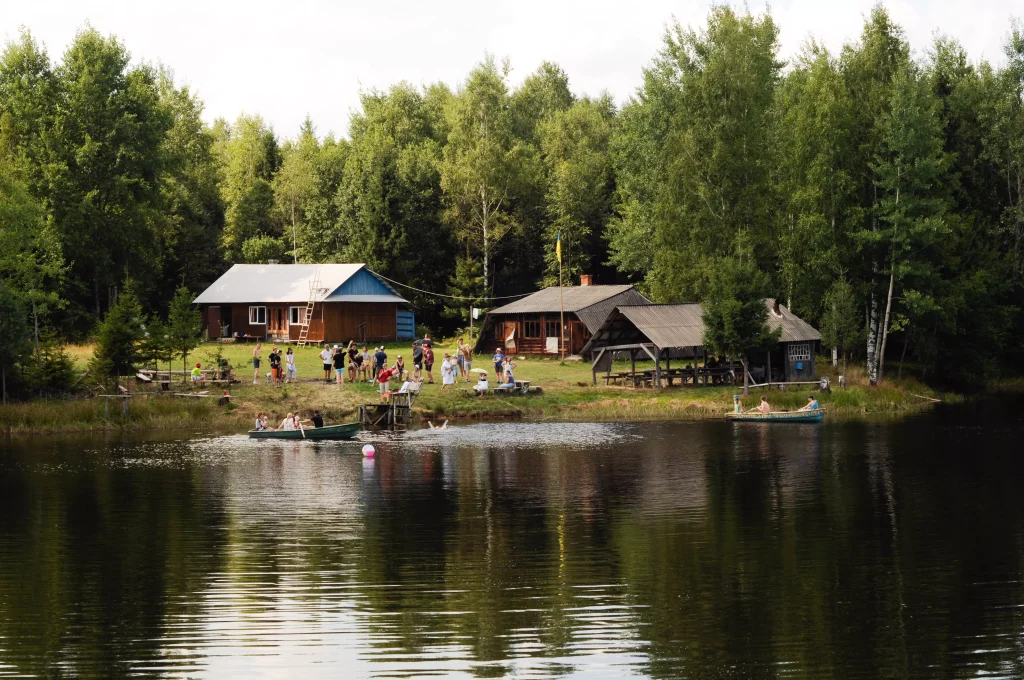
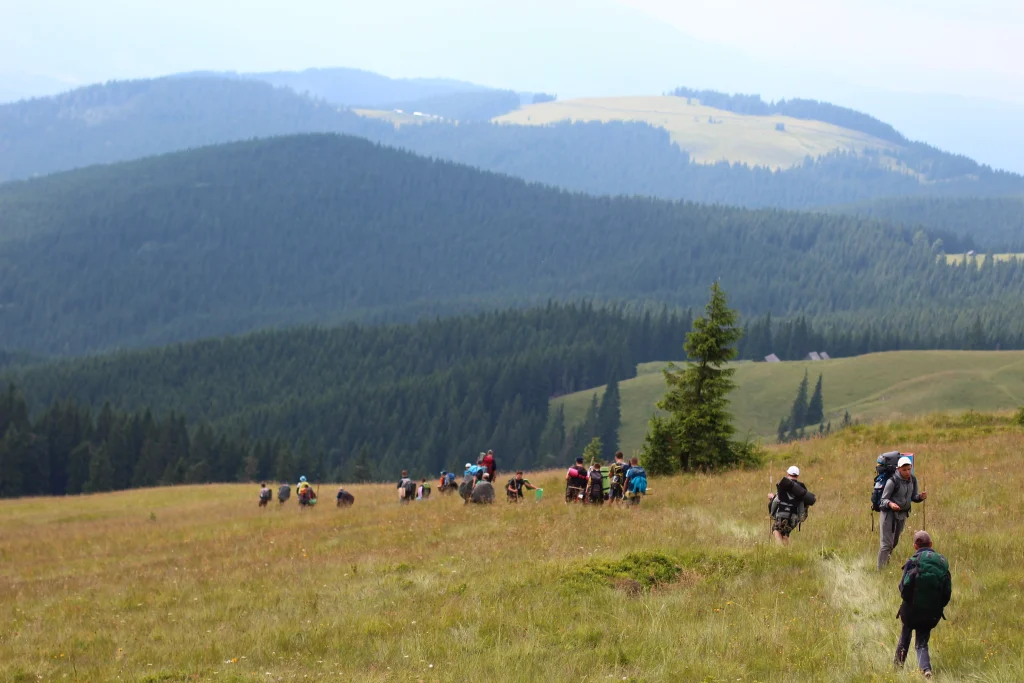
The summer camp is the result of the annual Plast program. All year round, children acquire theoretical and practical skills and prepare for the camp.
During the full-scale war, Plast camps became one of the most important priorities. After all, there a child can not only develop and socialize, but also just take a break from the sirens and sounds of explosions as well as spend time with friends. We are grateful to all our Scout friends who helped us to organize camps abroad, safely, for thousands of children!
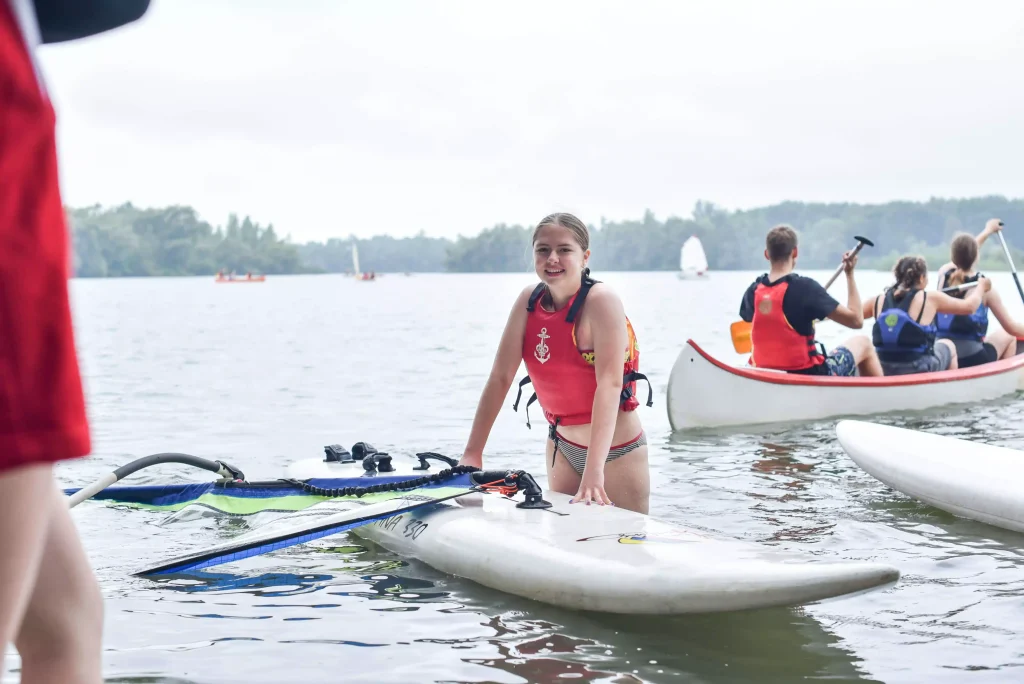
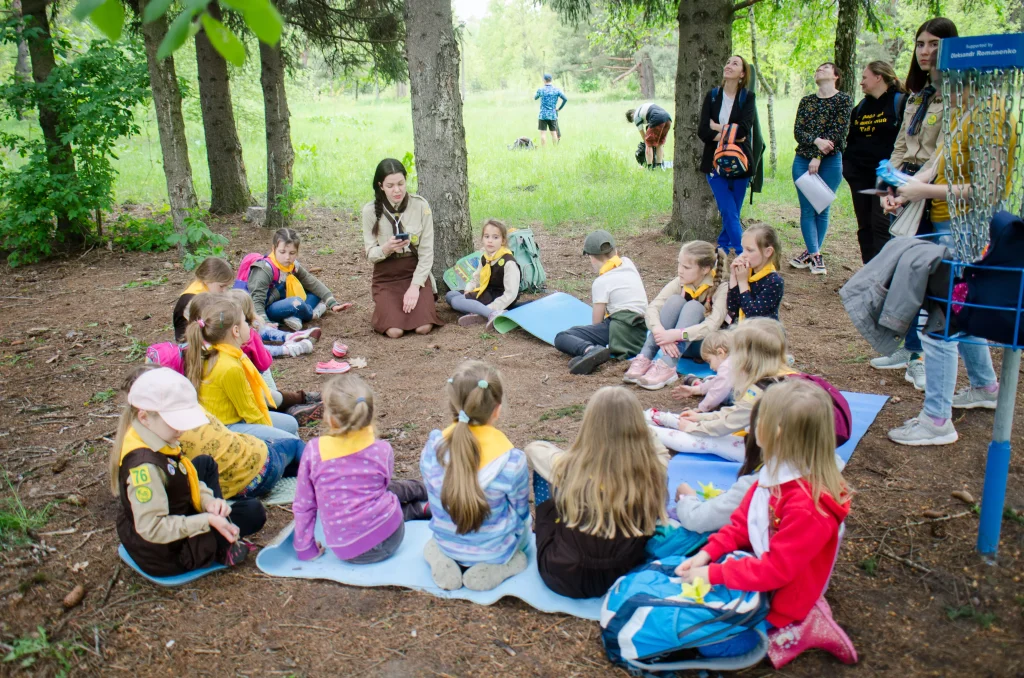
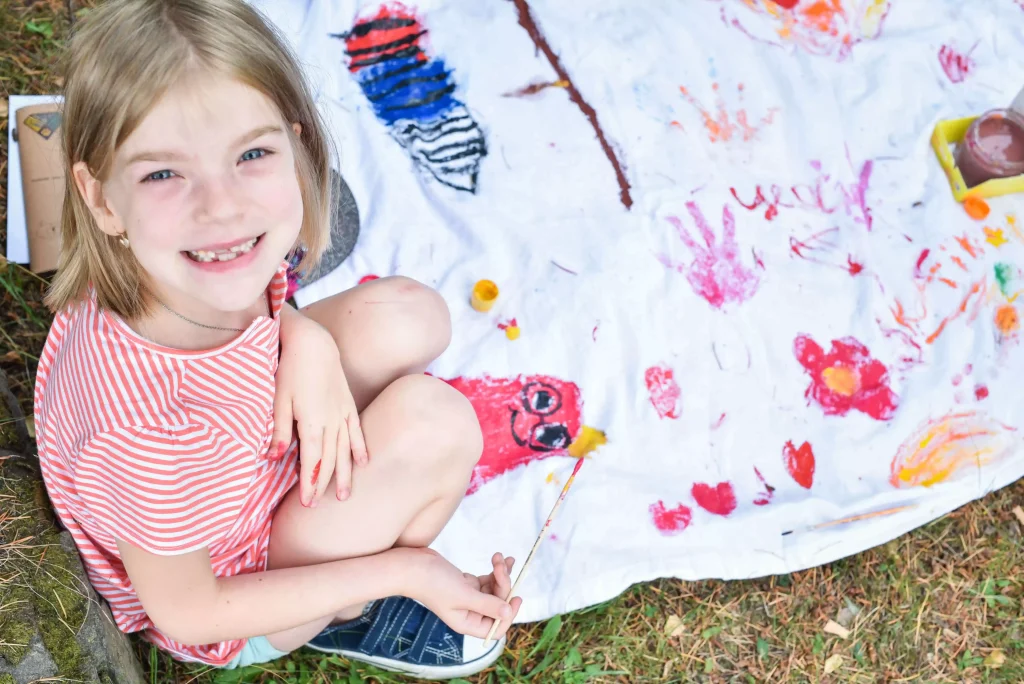
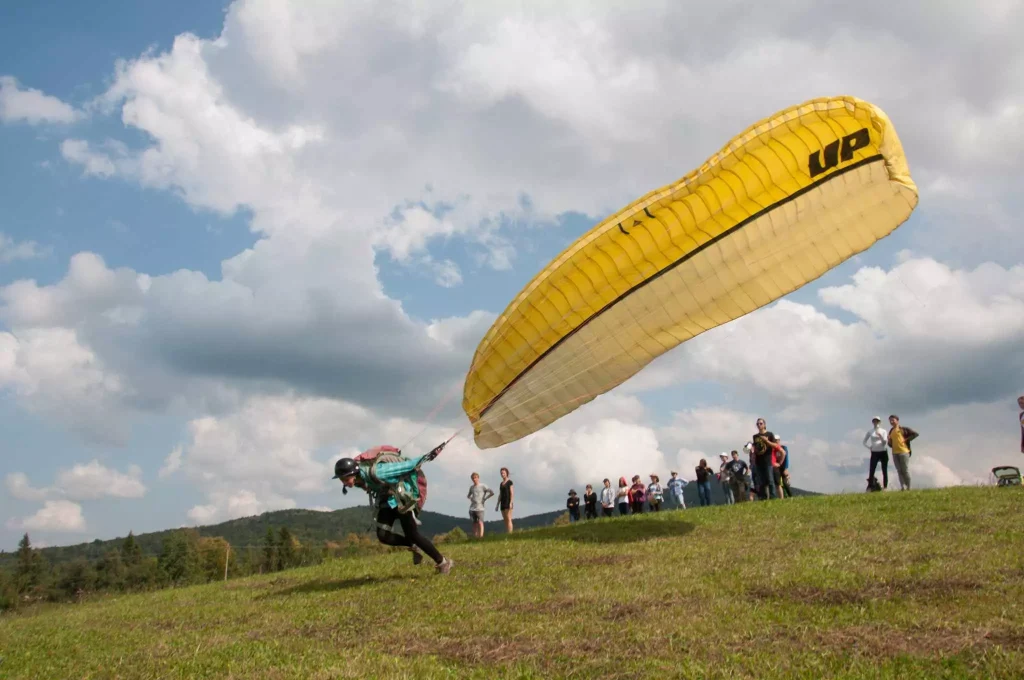
It is important that Plast has unique specialized camps where children can learn specific skills. For example, there is a marine camp where they go sailing and floating, a flying camp where they fly paragliders, an art camp, a travel camp, a sports camp, a cycling camp, etc.
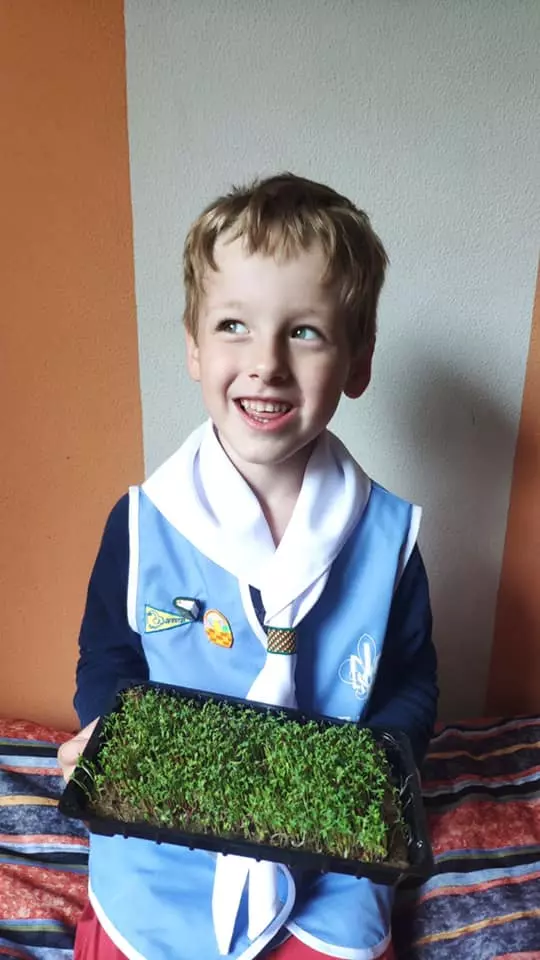
Since Plast members spend most of their scouting time in nature, they have a special, careful attitude toward it. Children are instilled with environmental awareness from an early age, taught that the place they leave should be cleaner than it was before.
In Plast, children grow up with the understanding that our planet is our home and we need to take care of it.
Adult support
You can join Plast at any age. Also, participation in the organization is lifelong. There are 2 age groups for adults: elder Plast members (18-34 years old) and senior Plast members (35 years old and older).
They can scout independently or unite in groups – troops with a certain specialization. Each has its own system of degrees and rules. These troops are a special Ukrainian phenomenon, not found anywhere else in the scouting world.
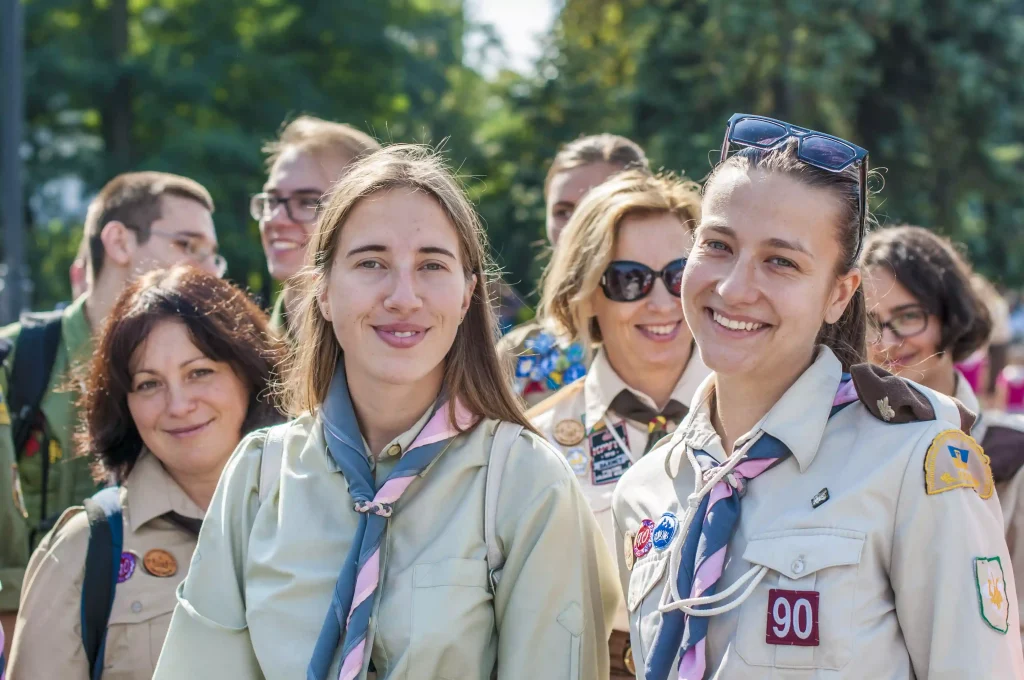
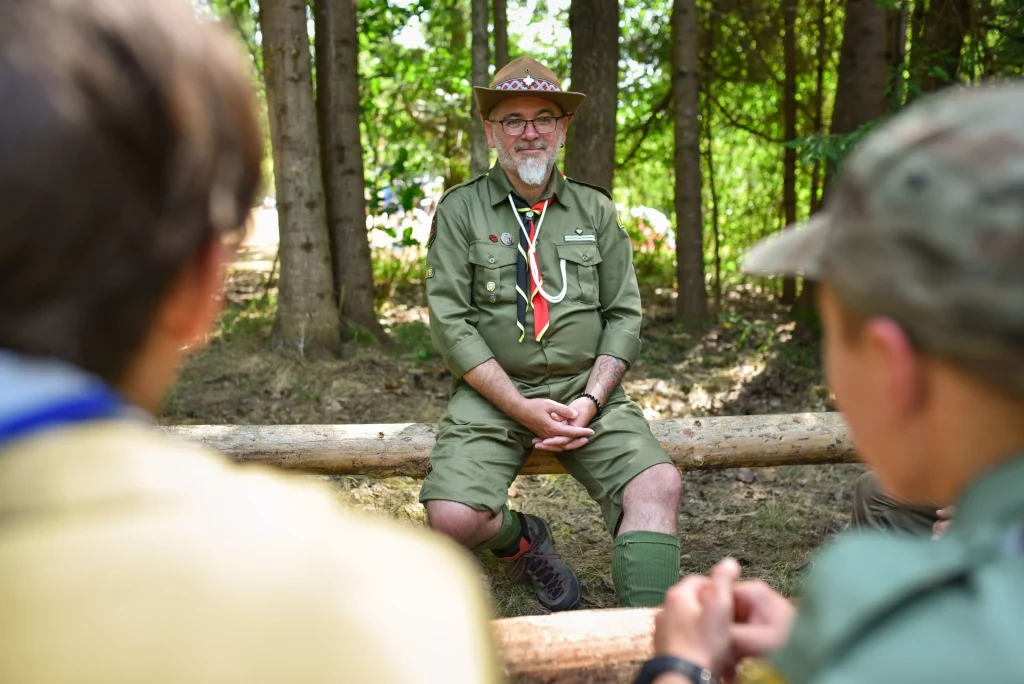
There is also a unified self-development program for Plast seniors, which includes three levels. This is also a unique phenomenon in scouting. Perhaps it was Plast that organized such a structure of scoutmasters for the first time in world history. As early as 1930, the concept was created according to which scouting self-education continues among older people. In WOSM, a similar phenomenon developed only after World War II.
Also, in order to work with children, organize events, or develop a particular branch, each volunteer undergoes special training. Thus, self-education in Plast covers all age groups. Plast for adults is also an environment of quality development. Learn more about programmes for adults here.
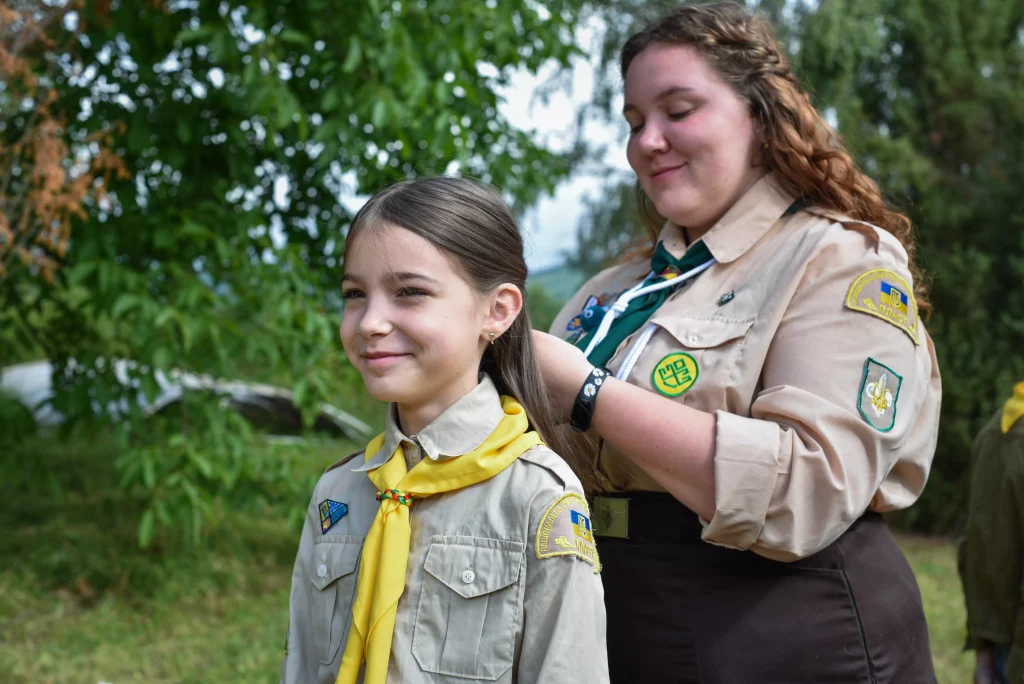
And this allows them to be an example for children of constant work on themselves, work on mistakes, perseverance, responsibility, etc. By their example, adults in Plast show that it is important to be educated to understand the world we live in. That’s why volunteers often organize events for children in libraries, museums, and educational centers. Adults are not afraid to tell children about their mistakes to show them that everyone can make mistakes, and this is not the end of the road, but a new experience that makes us stronger.
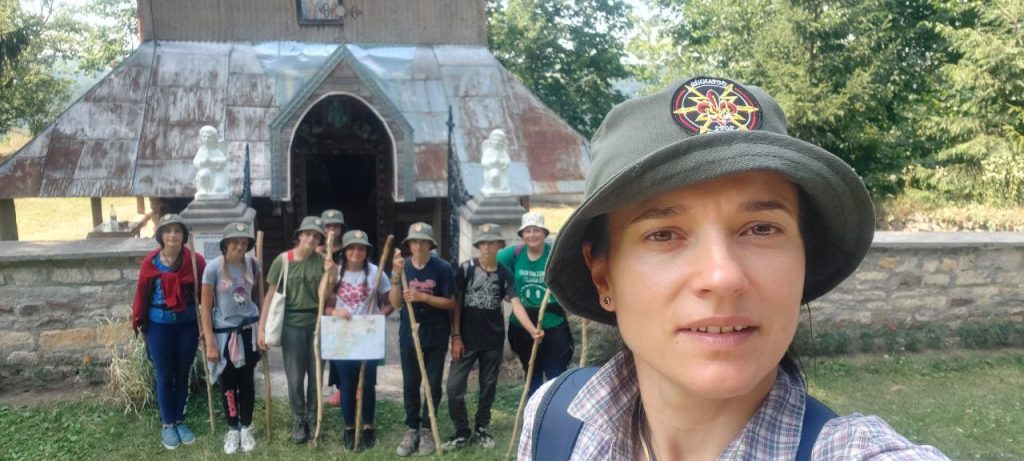
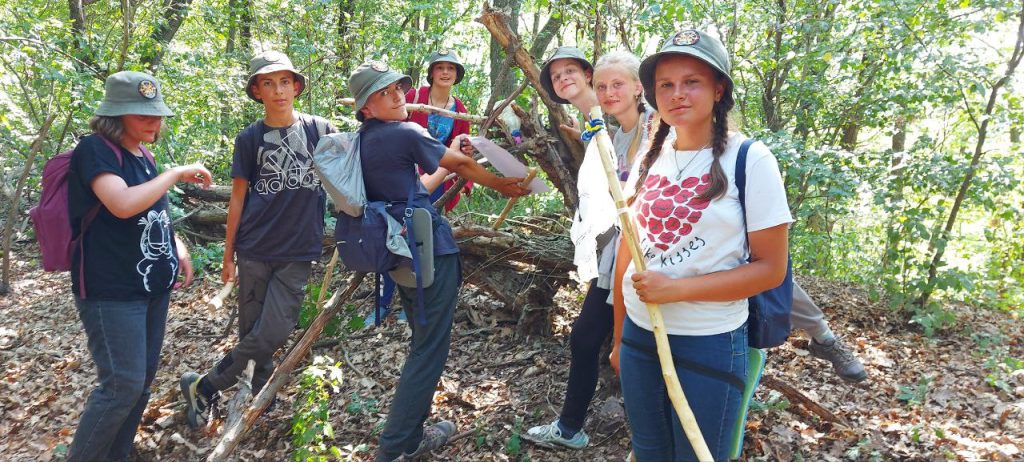
“When I first went to the camp as a tutor, I had a hard time with topography, map reading, and spatial orientation. And very soon we had to conduct a quest in the forest for the children. So the day before the trip, I took a first aid kit, everything I needed, and walked the entire route on my own to be ready. It was a great opportunity to improve my skills and understand the difficulties that children may face on the quest,” says adult volunteer Larysa Borsuk.
Community Involvement
The goal of Plast is to educate Ukrainian youth to become conscious, responsible and fully worthy citizens of local, national as well as global communities. The second main duty of the Oath is to “help others”. So a Plast member lives in the community, for the community, with the community. And he understands it as a kind of service, developing a shared responsibility for the community’s affairs.
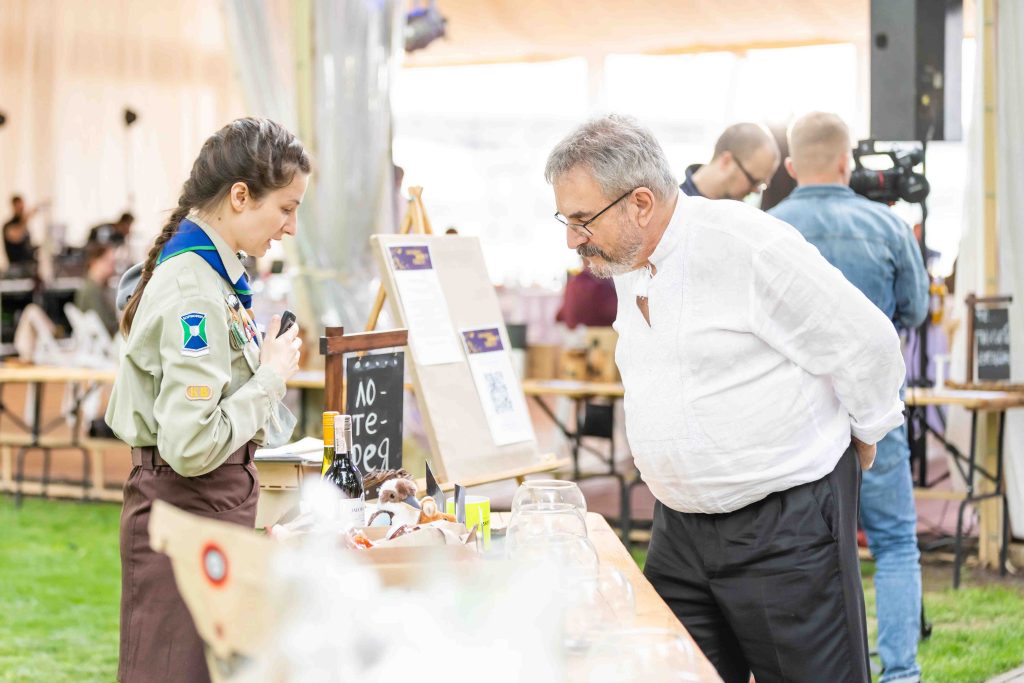
Today, thousands of Plast members in Ukraine are developing public life.
Plast members participate in political life and are deputies at various levels. Plast members are also the founders of many charitable initiatives, youth movements, and conscious businesses. It was the Plast members who launched the first initiatives in Ukraine to sort garbage and spread environmental awareness, the first public initiatives for young people.
Members of Plast who became Members of Parliament defended the law on volunteering and youth, which had not existed in the country before. The Plast members created new educational centers, schools, kindergartens, and even contributed to the creation of a university in Ukraine. And these institutions are based on the core value of scouting – serving the community.
Also, in the context of a full-scale invasion, Plast members are active volunteers who help our defenders and affected communities, bringing victory closer together.
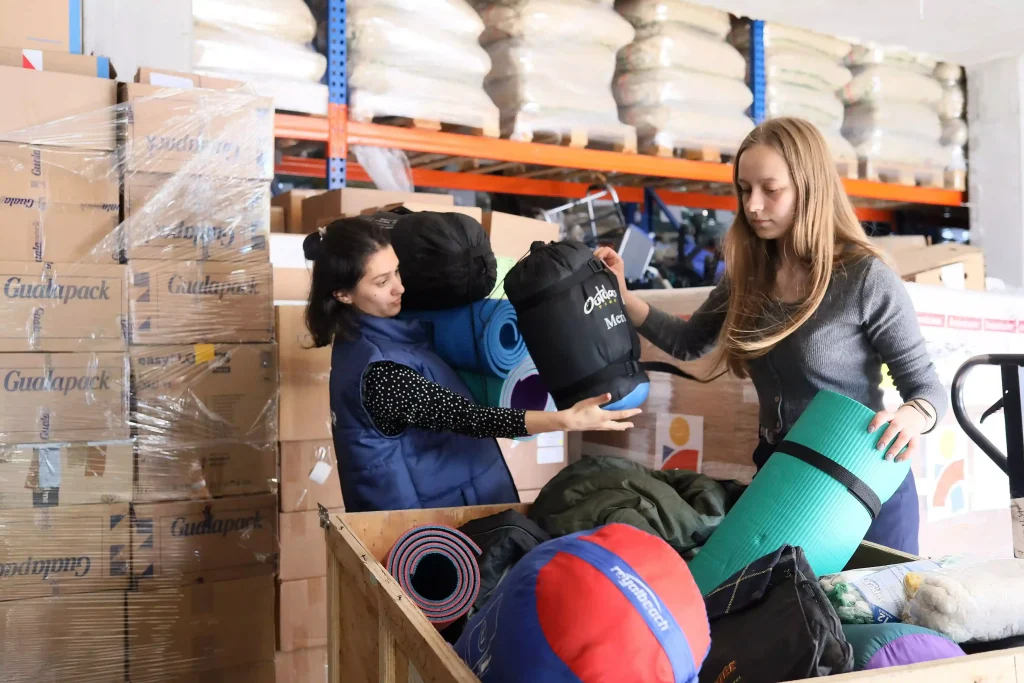
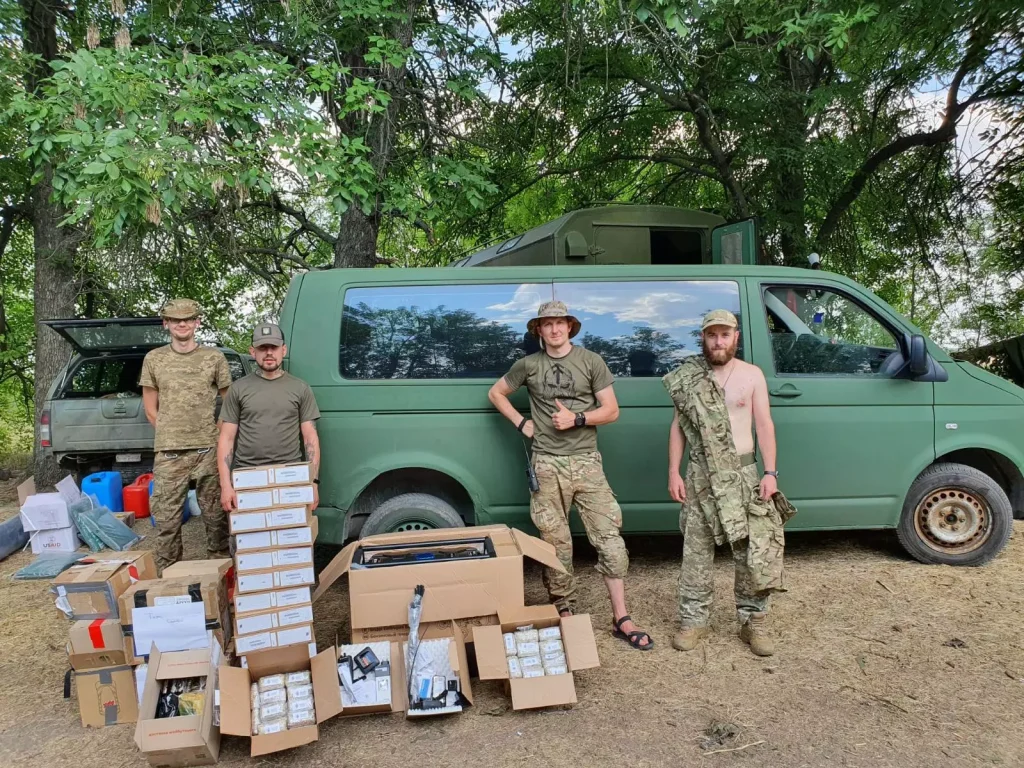
“Our headquarters in Poland started working on February 24, 2022, when the full-scale war in Ukraine began. There were a lot of requests, we worked almost around the clock. We try to close requests as quickly as possible to ensure timely assistance. Experience has shown that in a war, time is not counted in days, hours and minutes, but in human lives,” says a Plast member, a volunteer from the Plast headquarters in Poland.
As you can see, the Plast method is based on scouting practices, as well as elements adapted to Ukrainian culture and mentality. It has been tested for more than a century of the organization’s existence. This method has raised more than one generation of conscious citizens who have done their best for Ukraine at all stages of history.
Based on materials by Yuriy Yuzych, Mykola Bihus
Related news
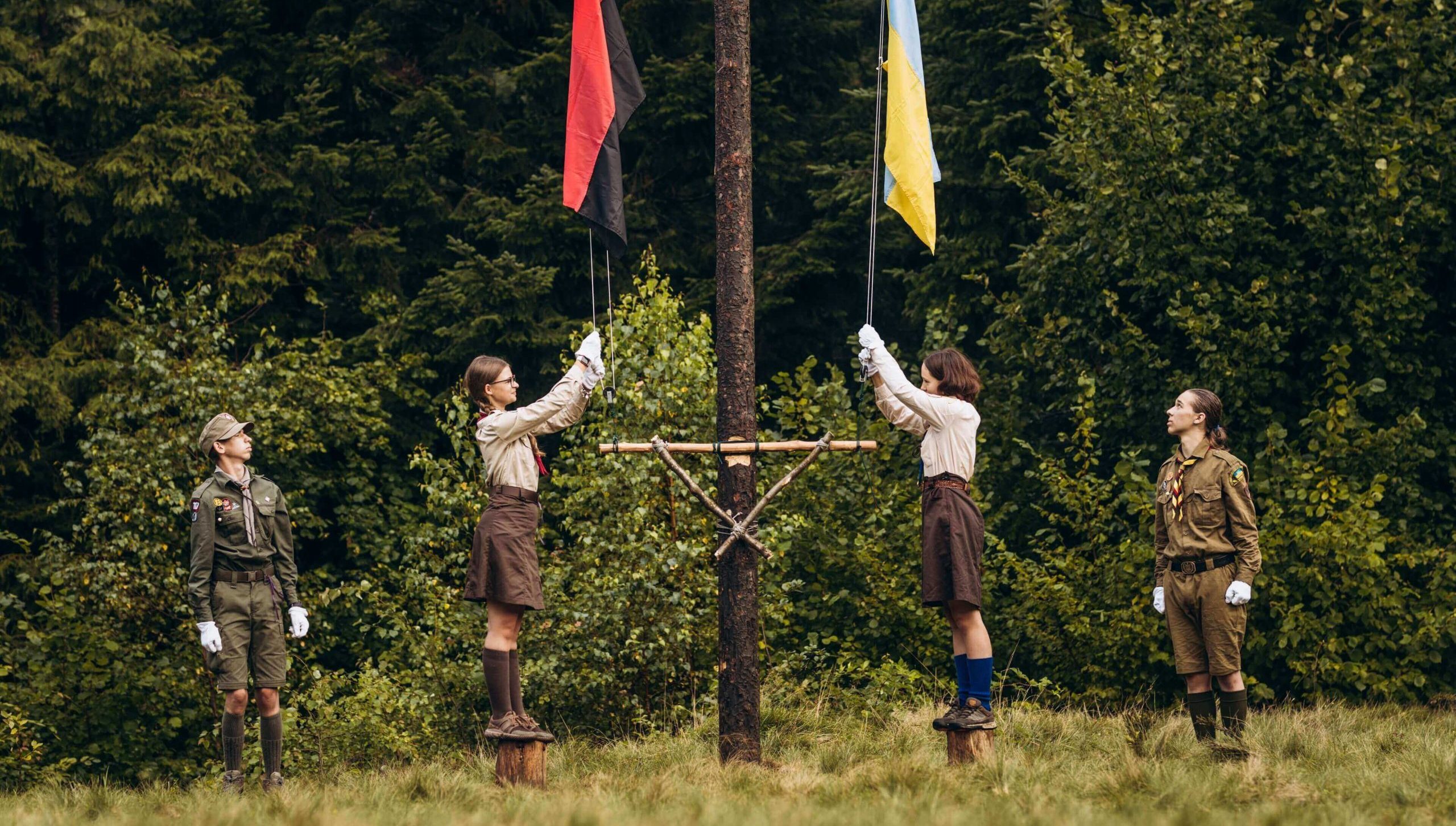
For 111 years russia and pro-russian organizations have been trying to destroy Plast — Ukrainian Scouting
Learn more
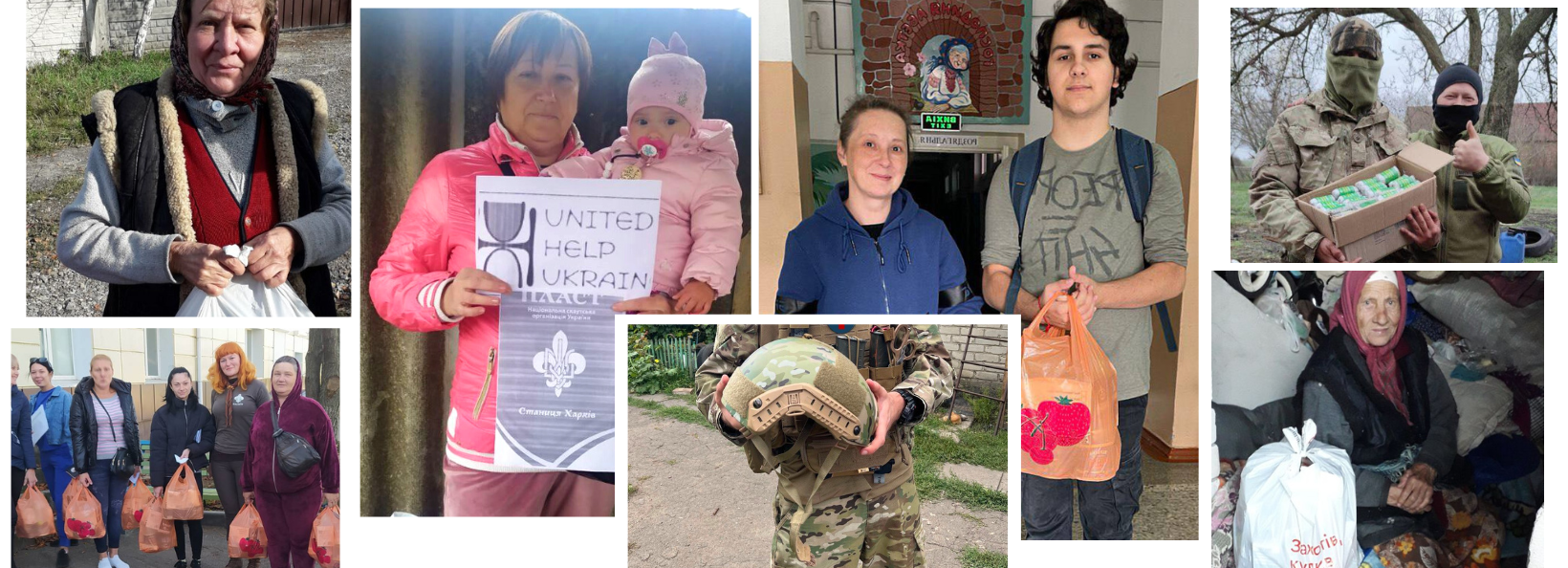
The American organization UHU gave Plast more than $75,000 to help Ukrainians and the scouts defenders
Learn more
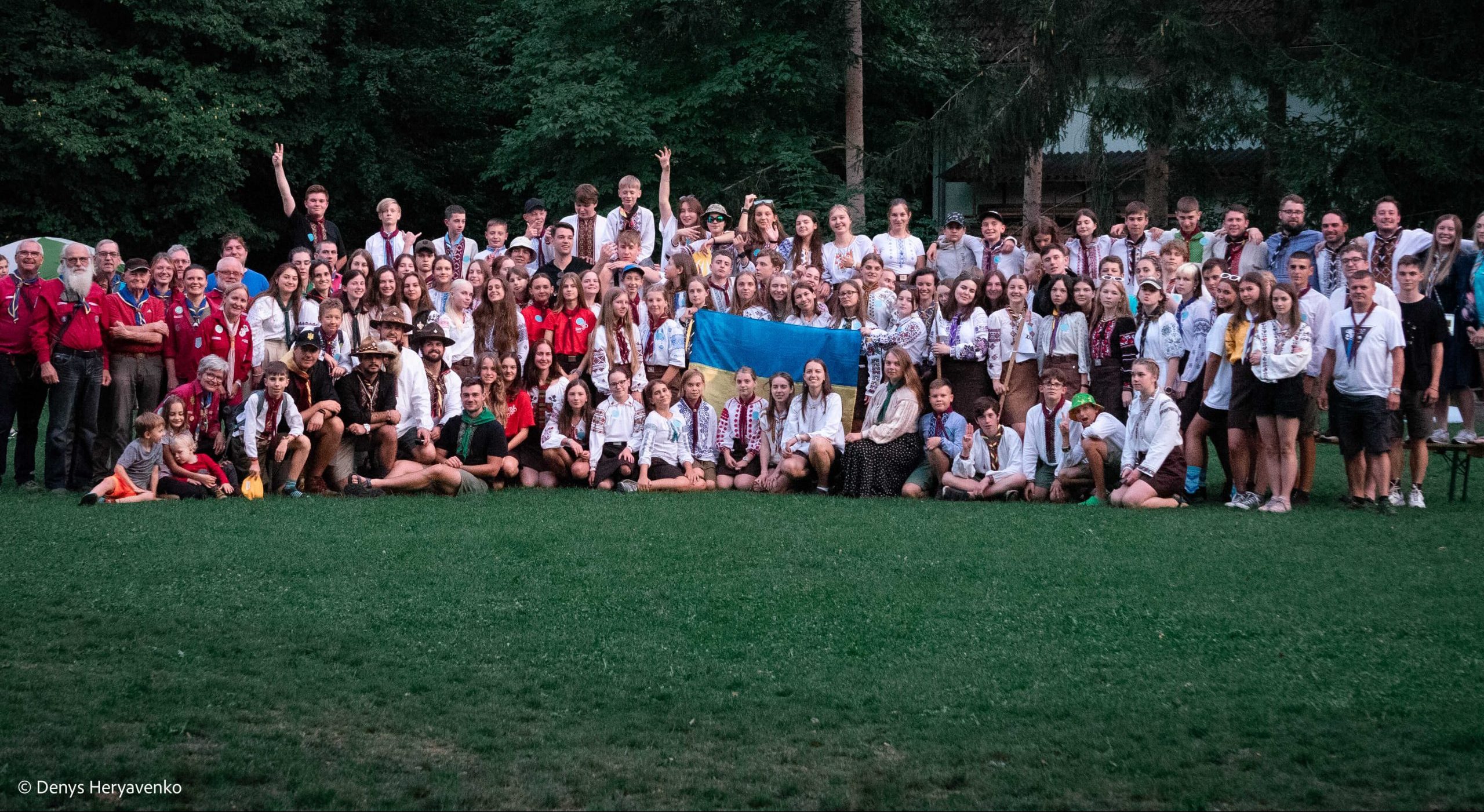
Plast and Scouts of Austria united to distract children from the war
Learn more
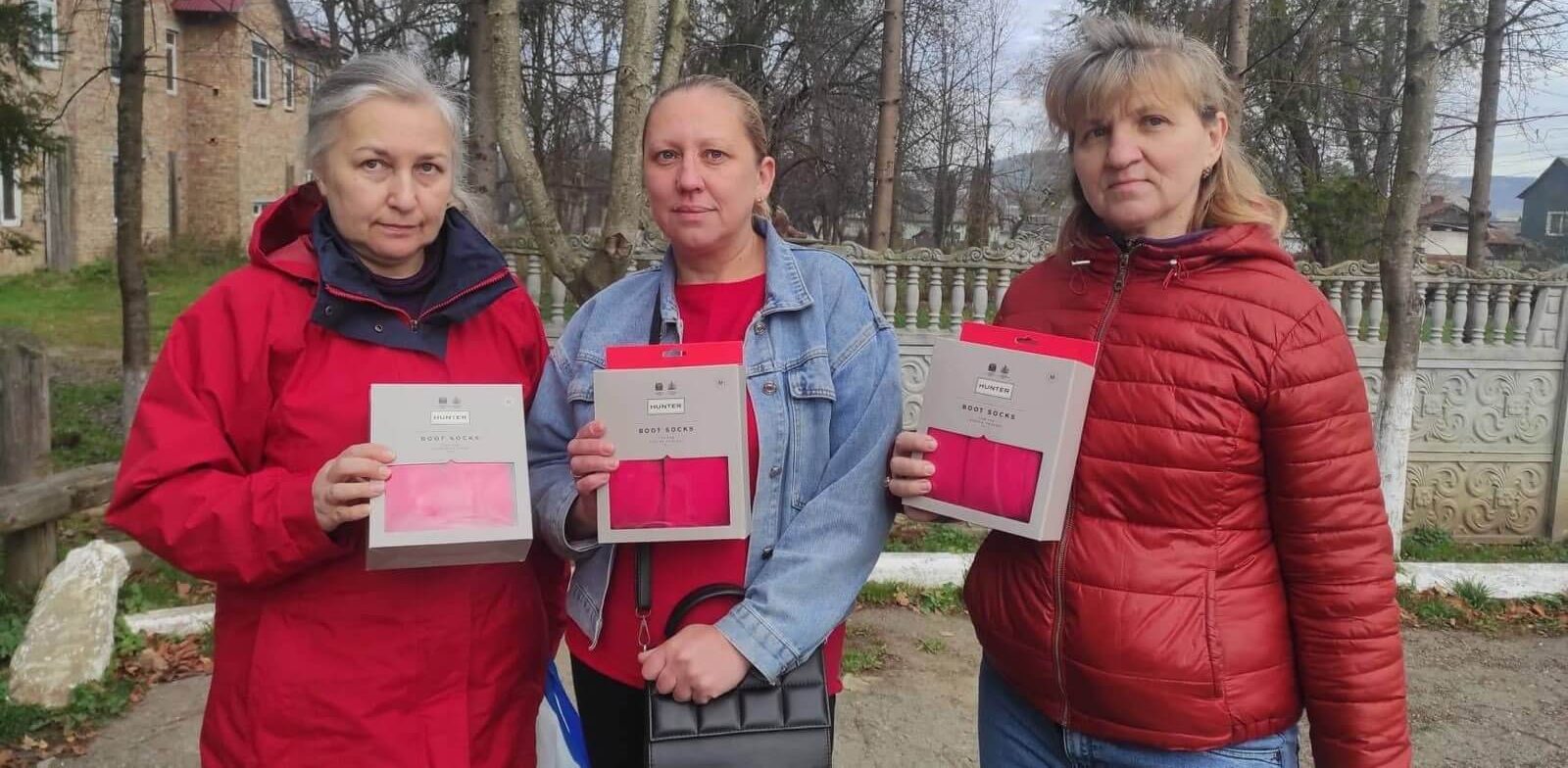
Canada-Ukraine Foundation and Plast helped more than 3000 families
Learn more
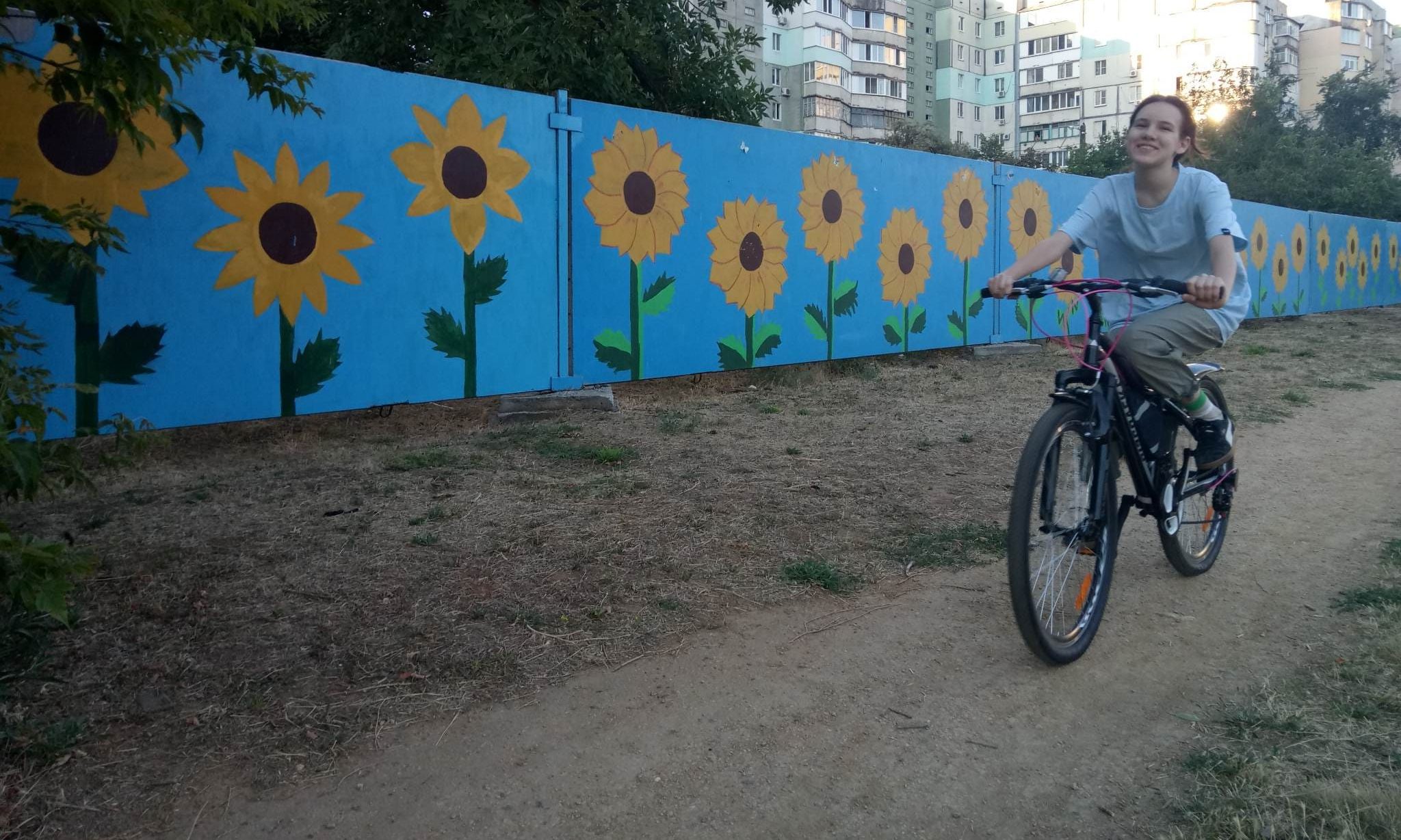
A family of Plast scouts lived in occupied Kherson for half of a year
Learn more



